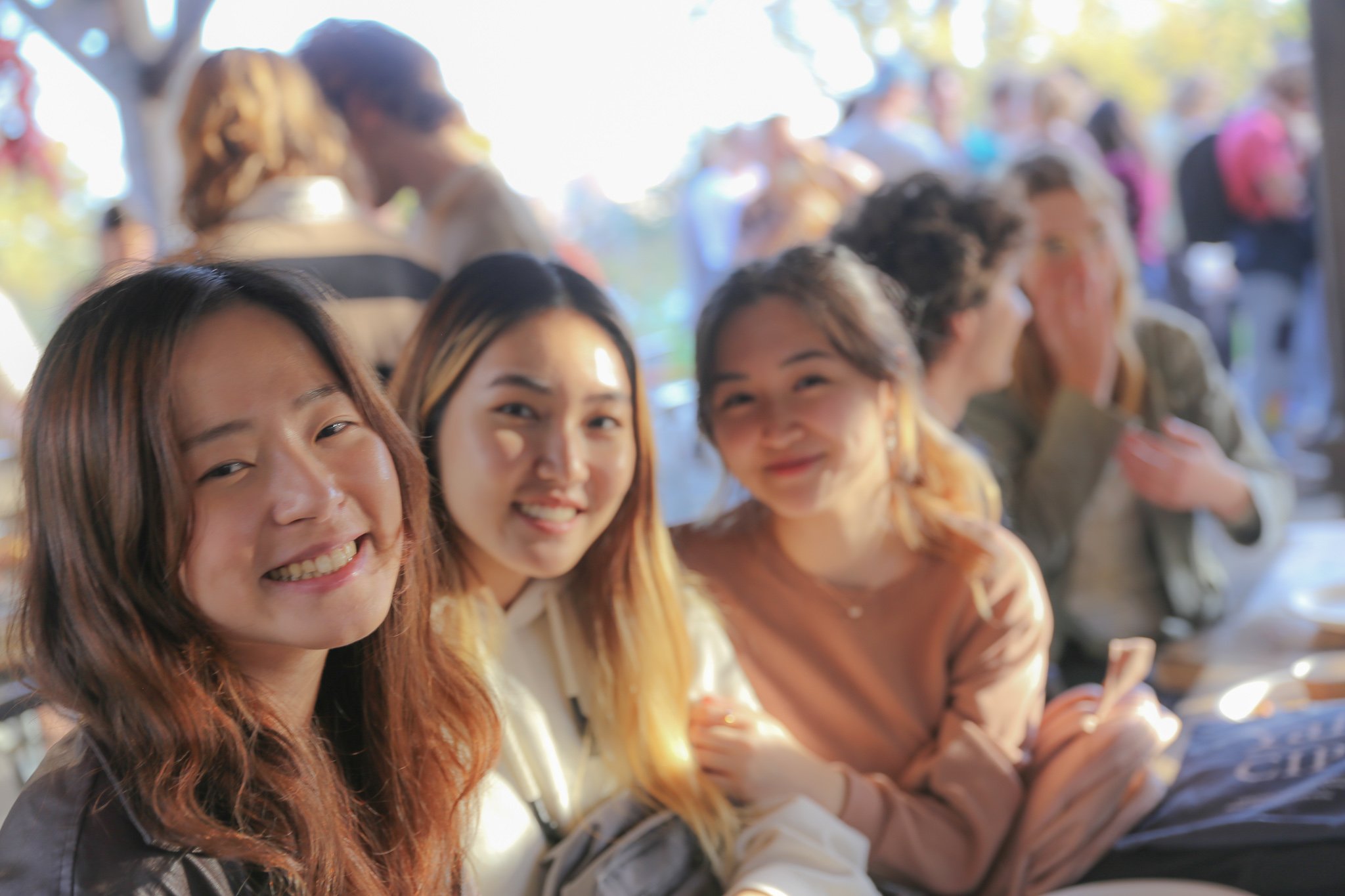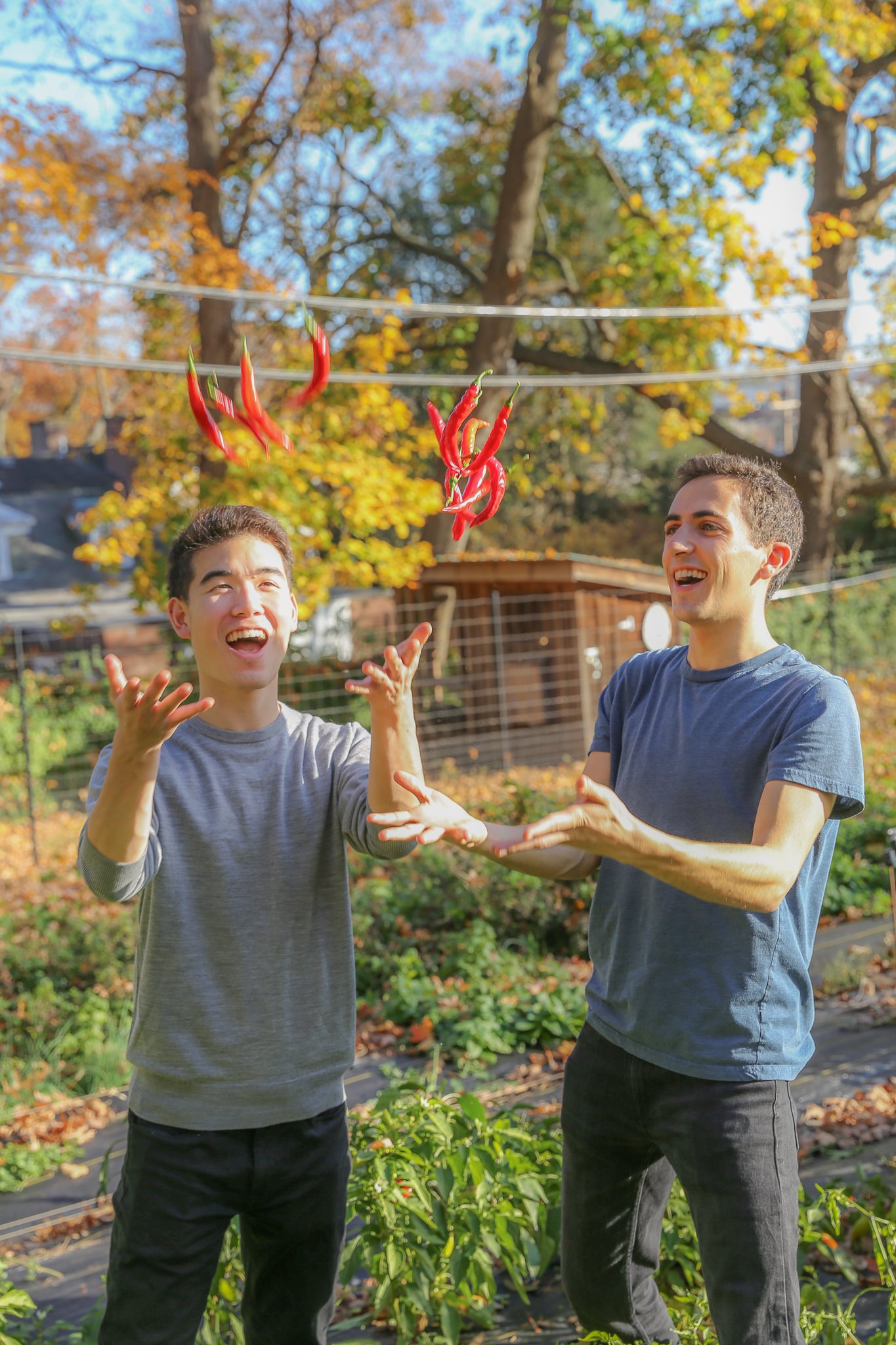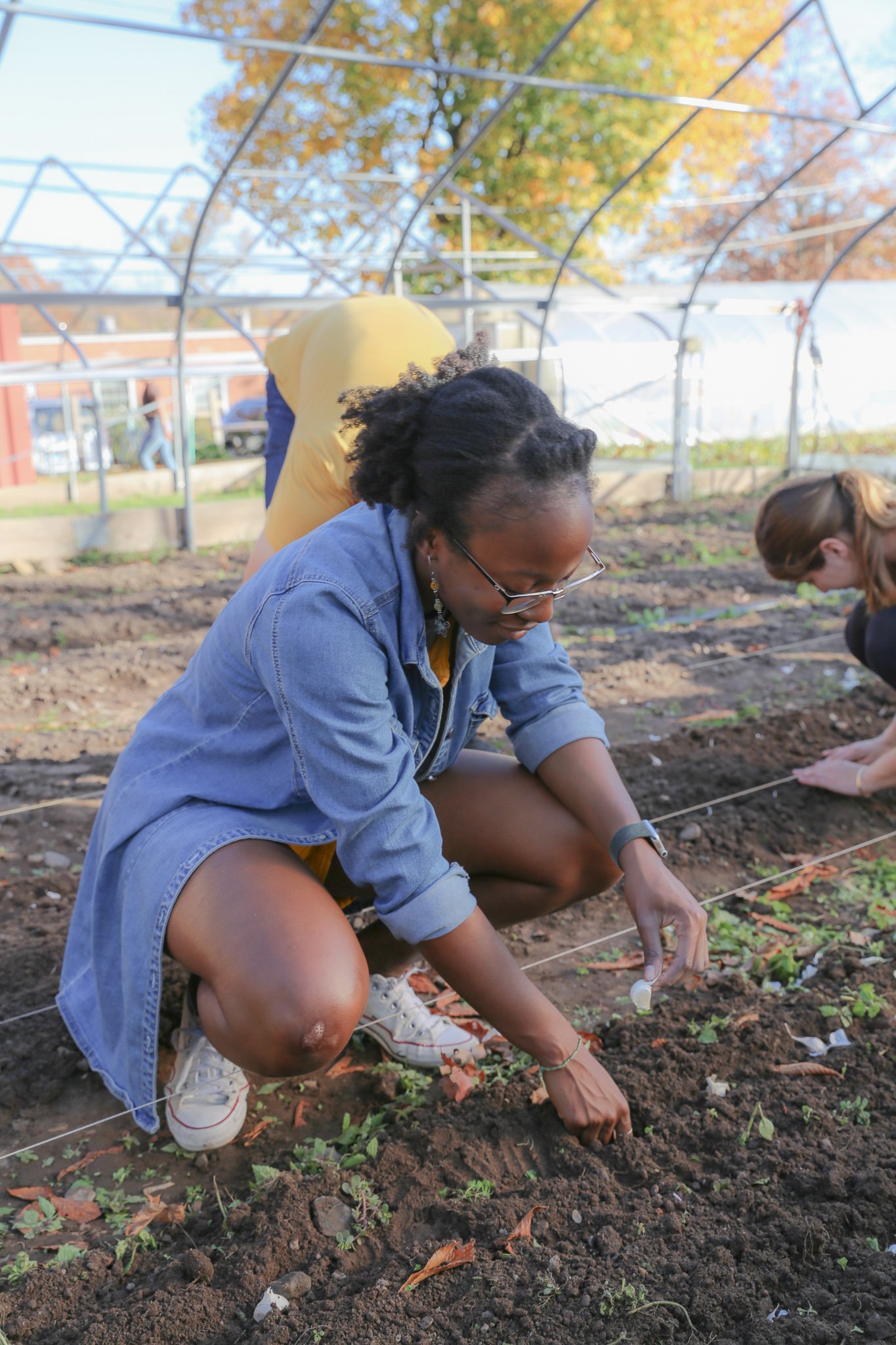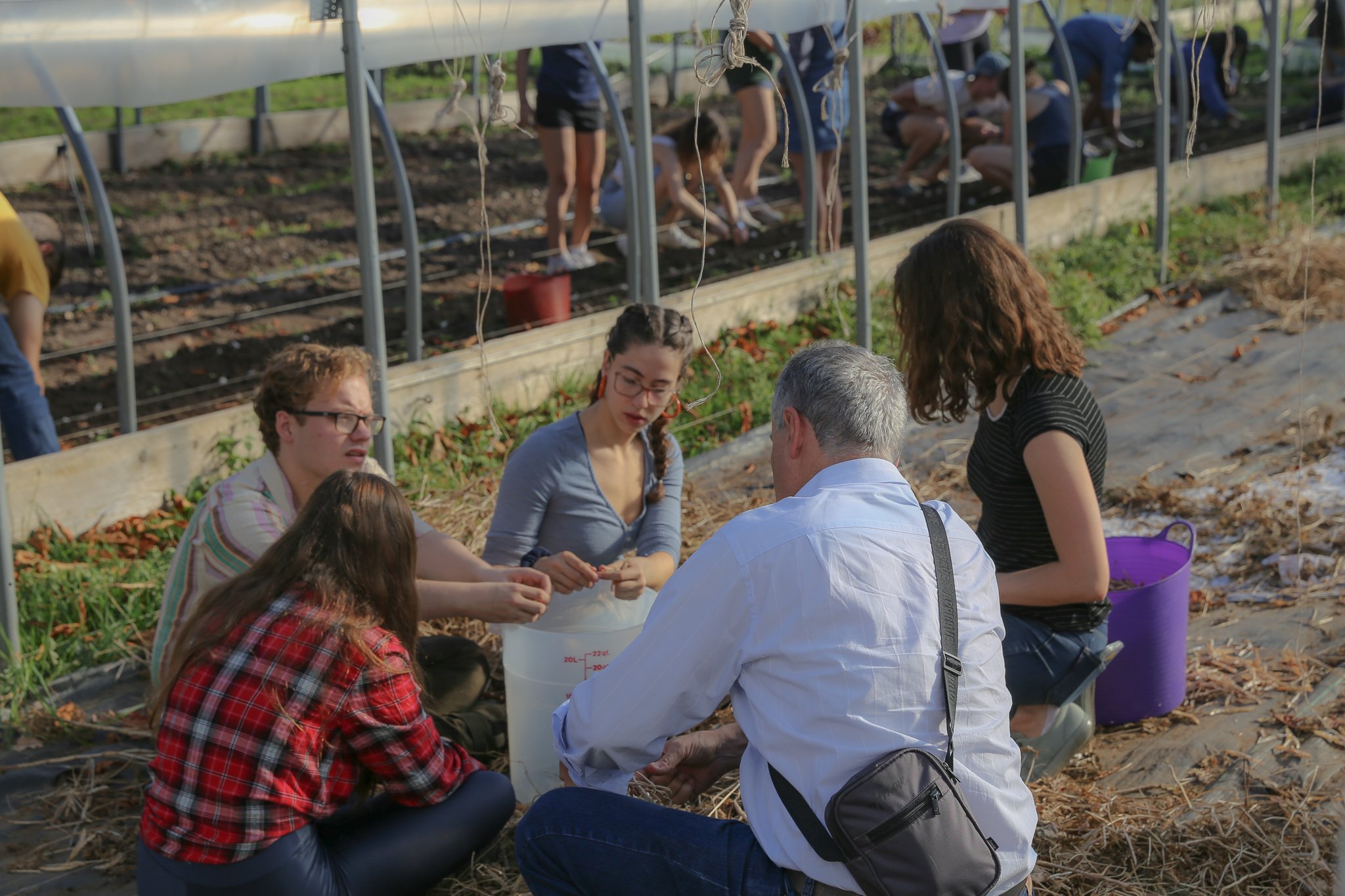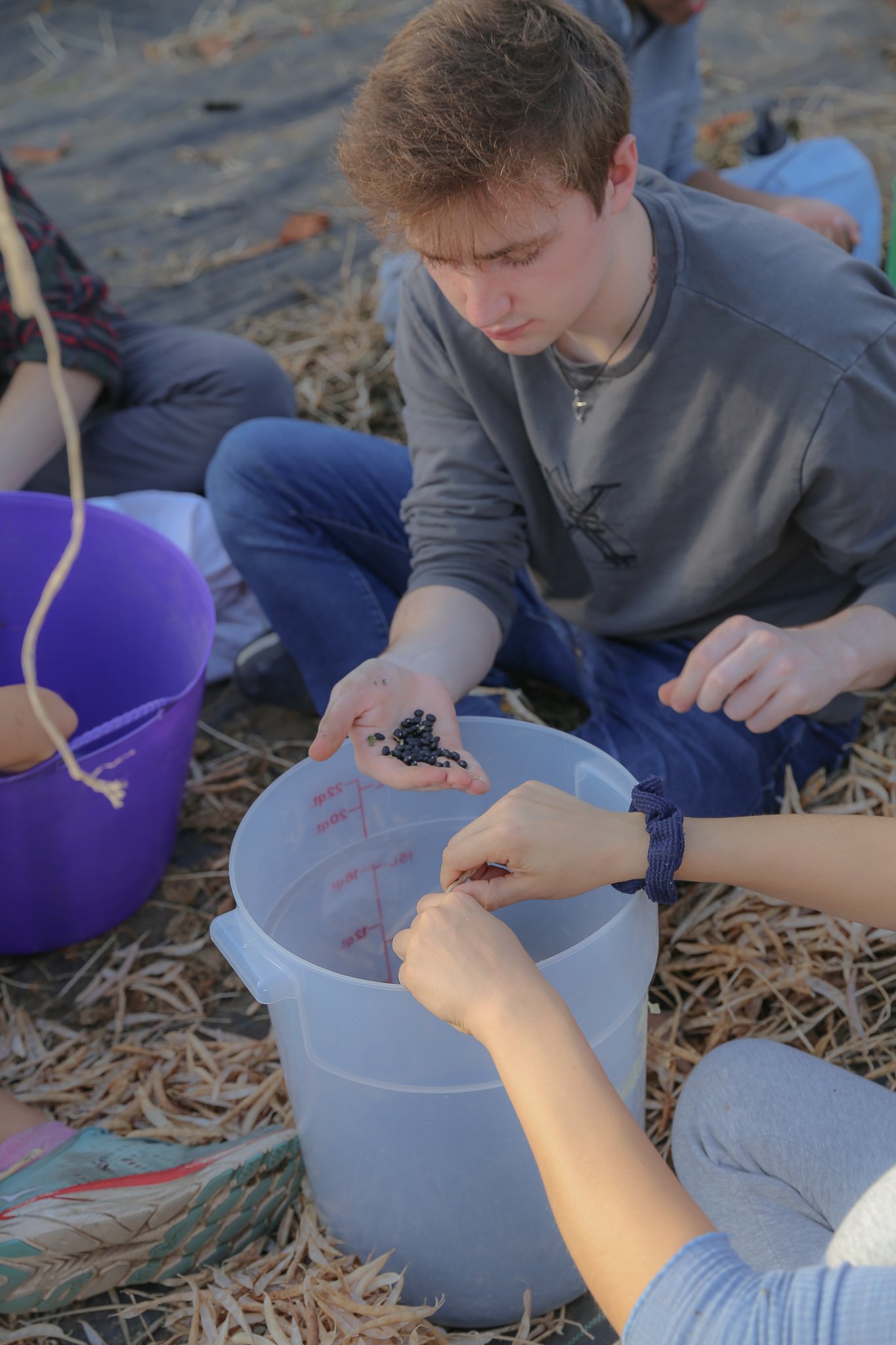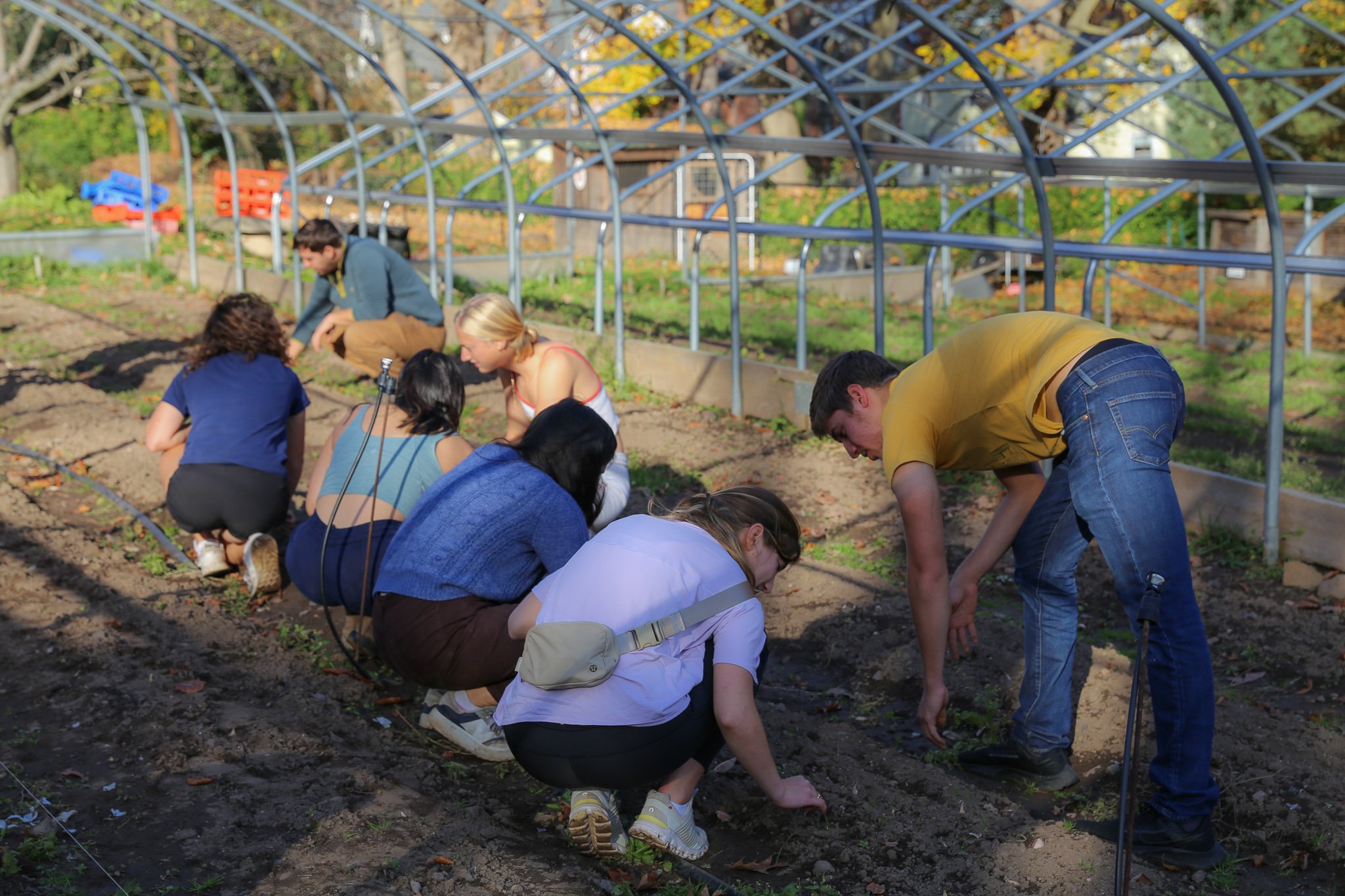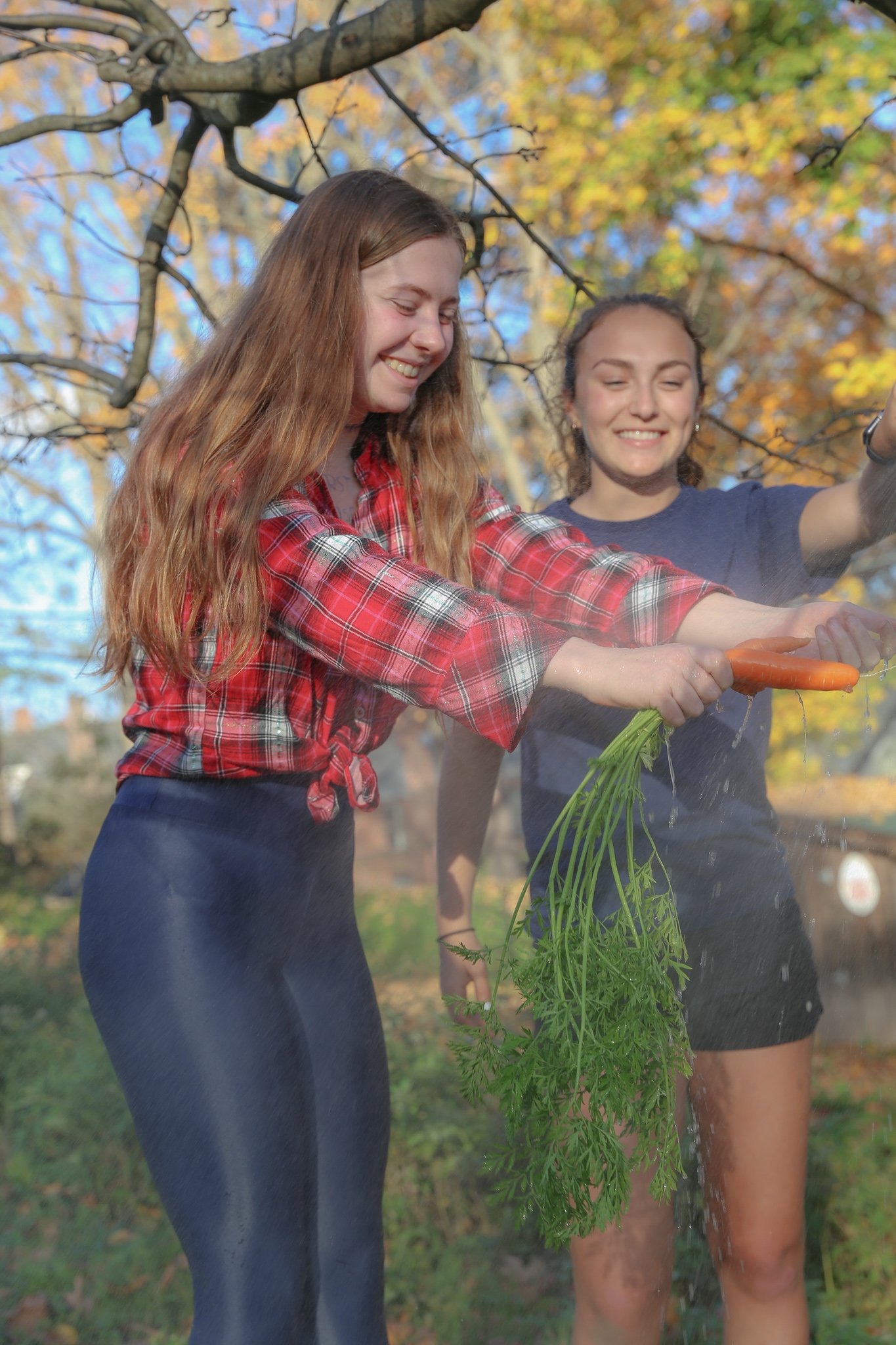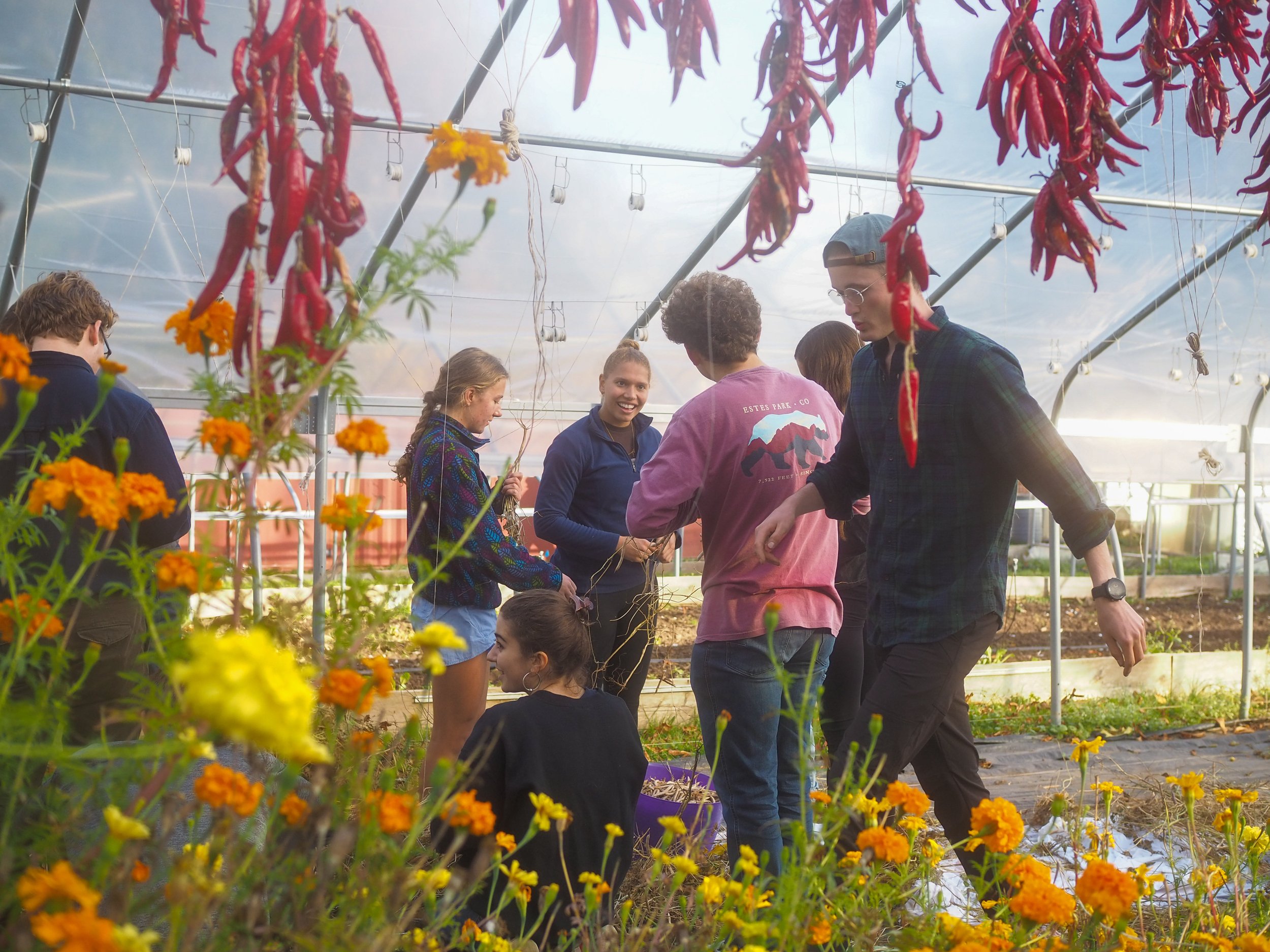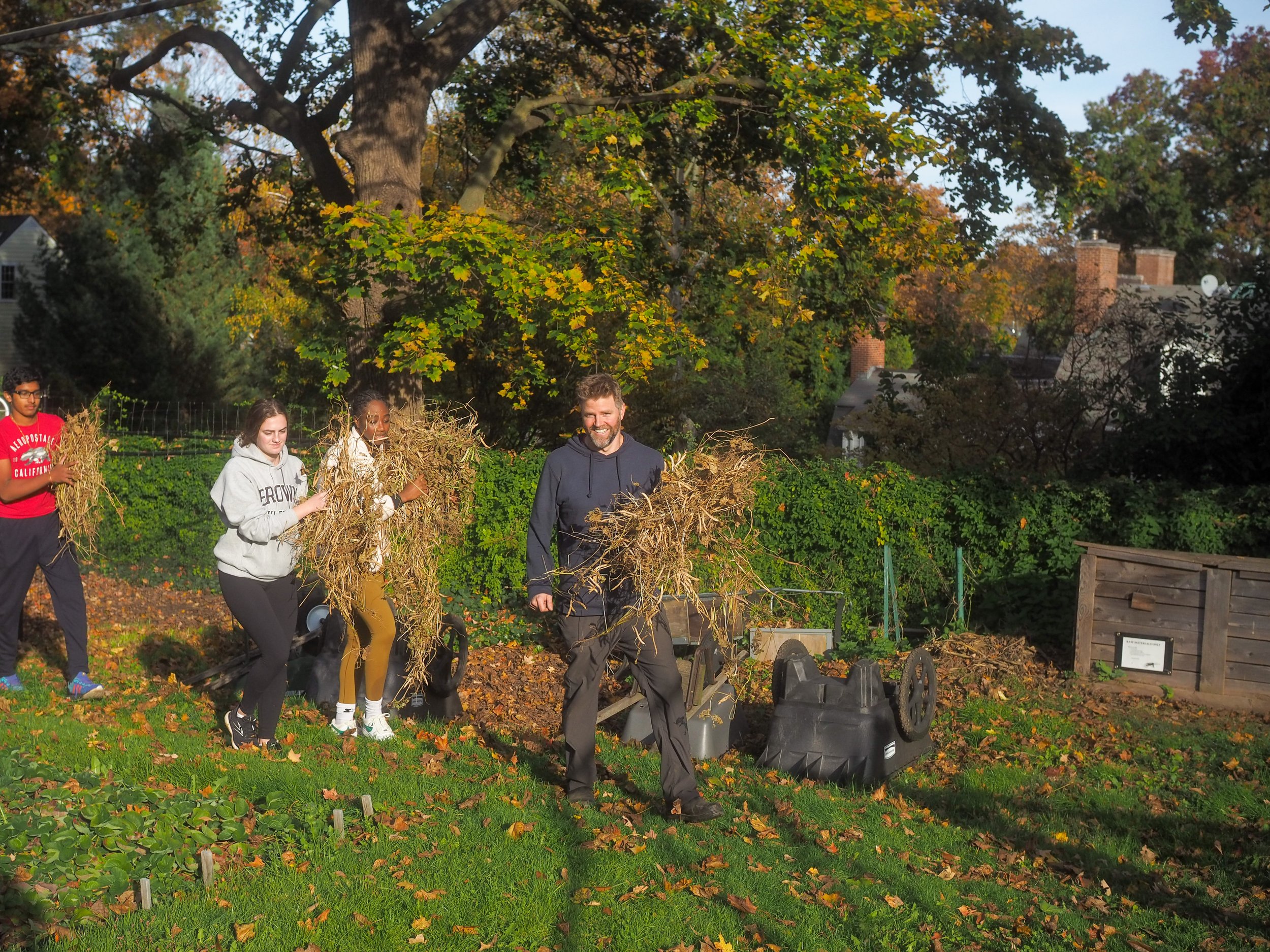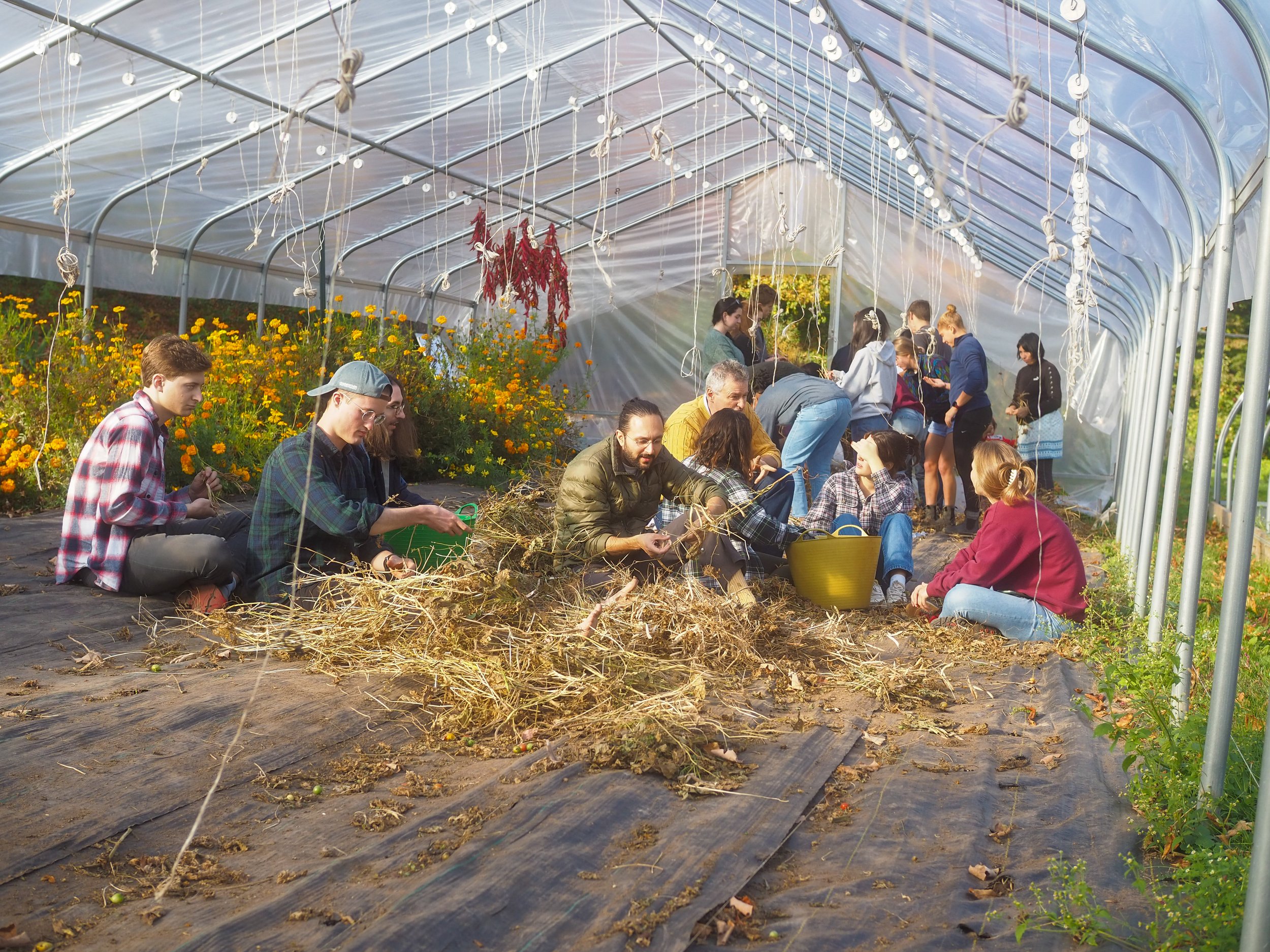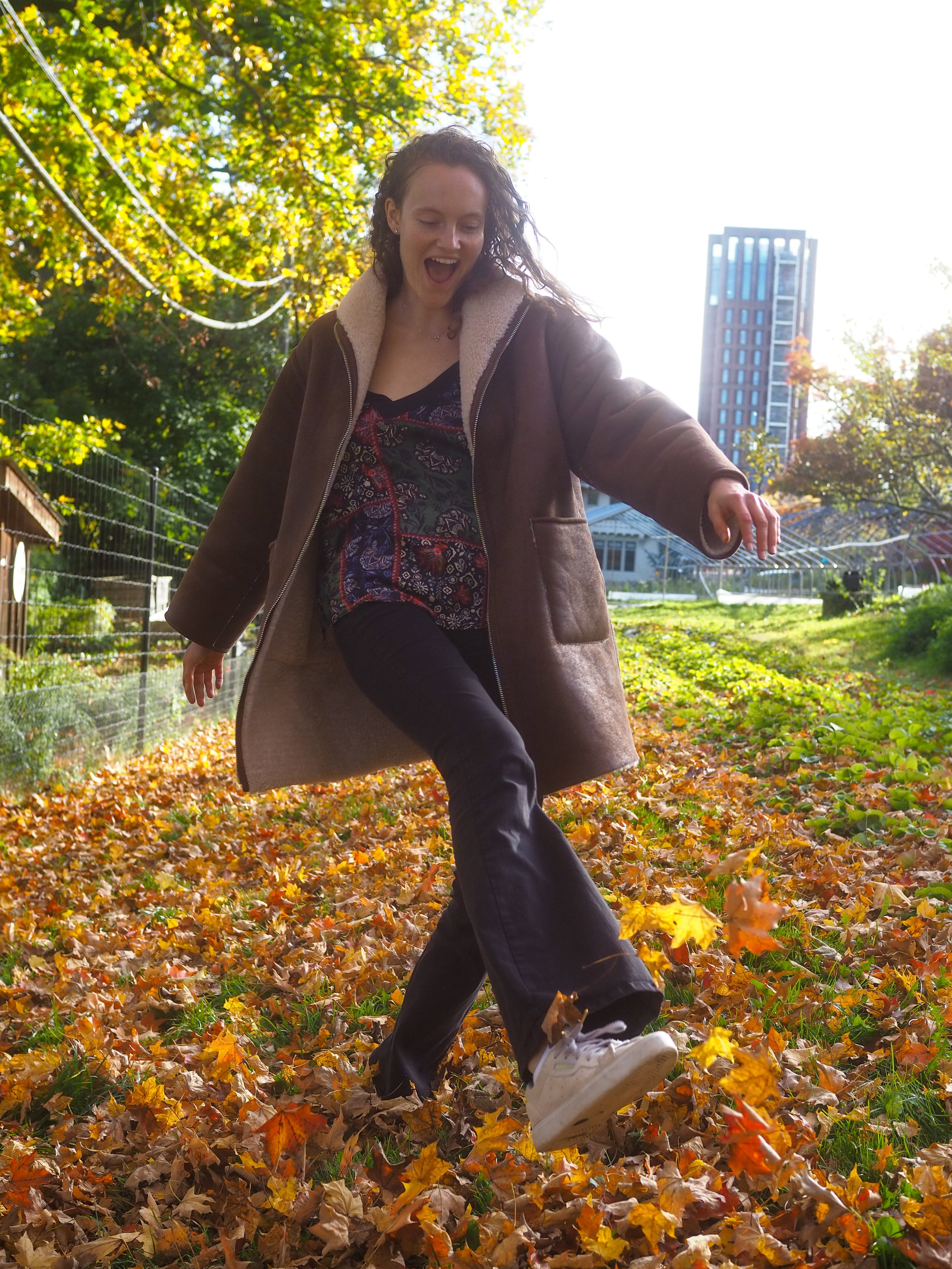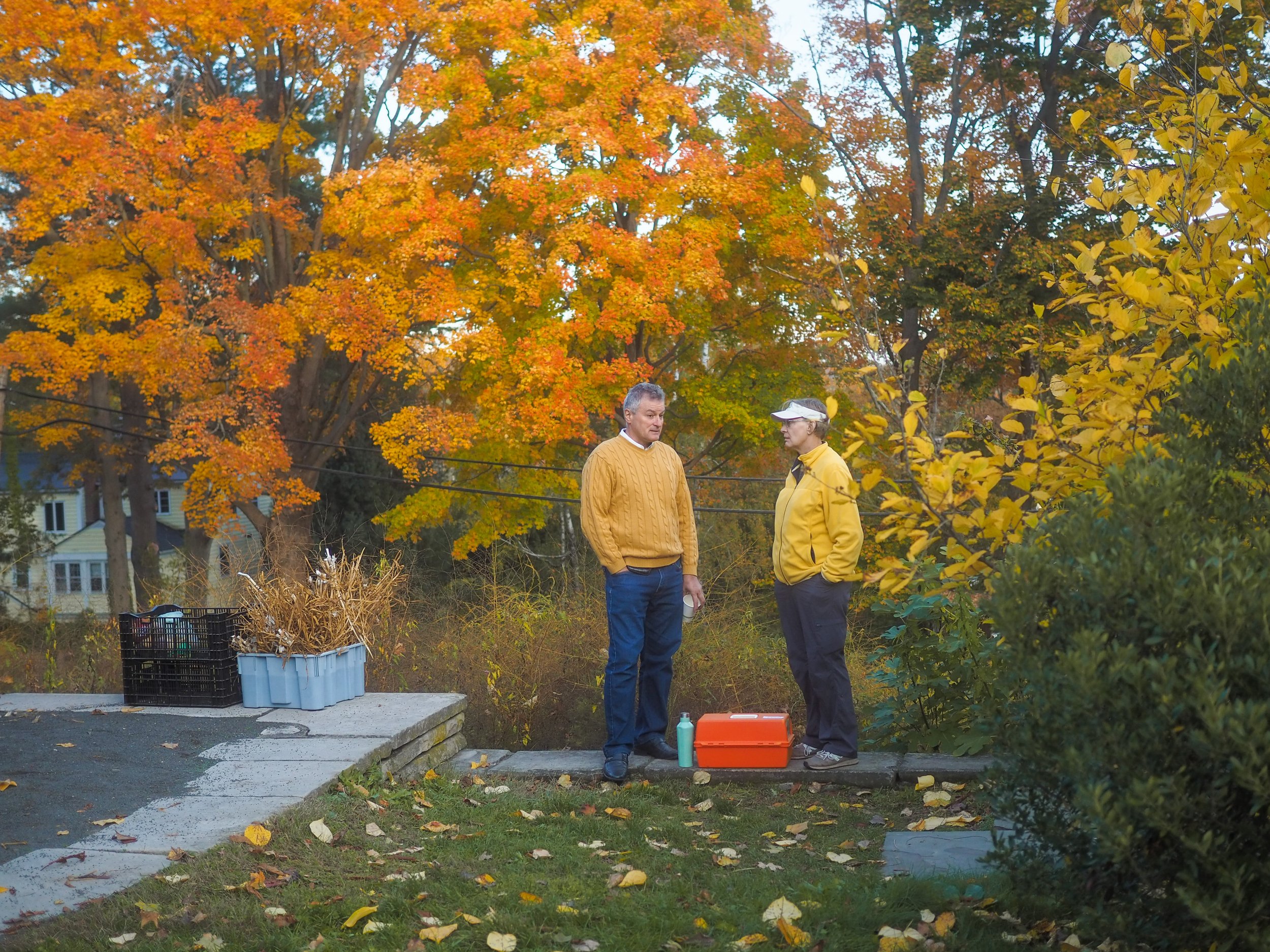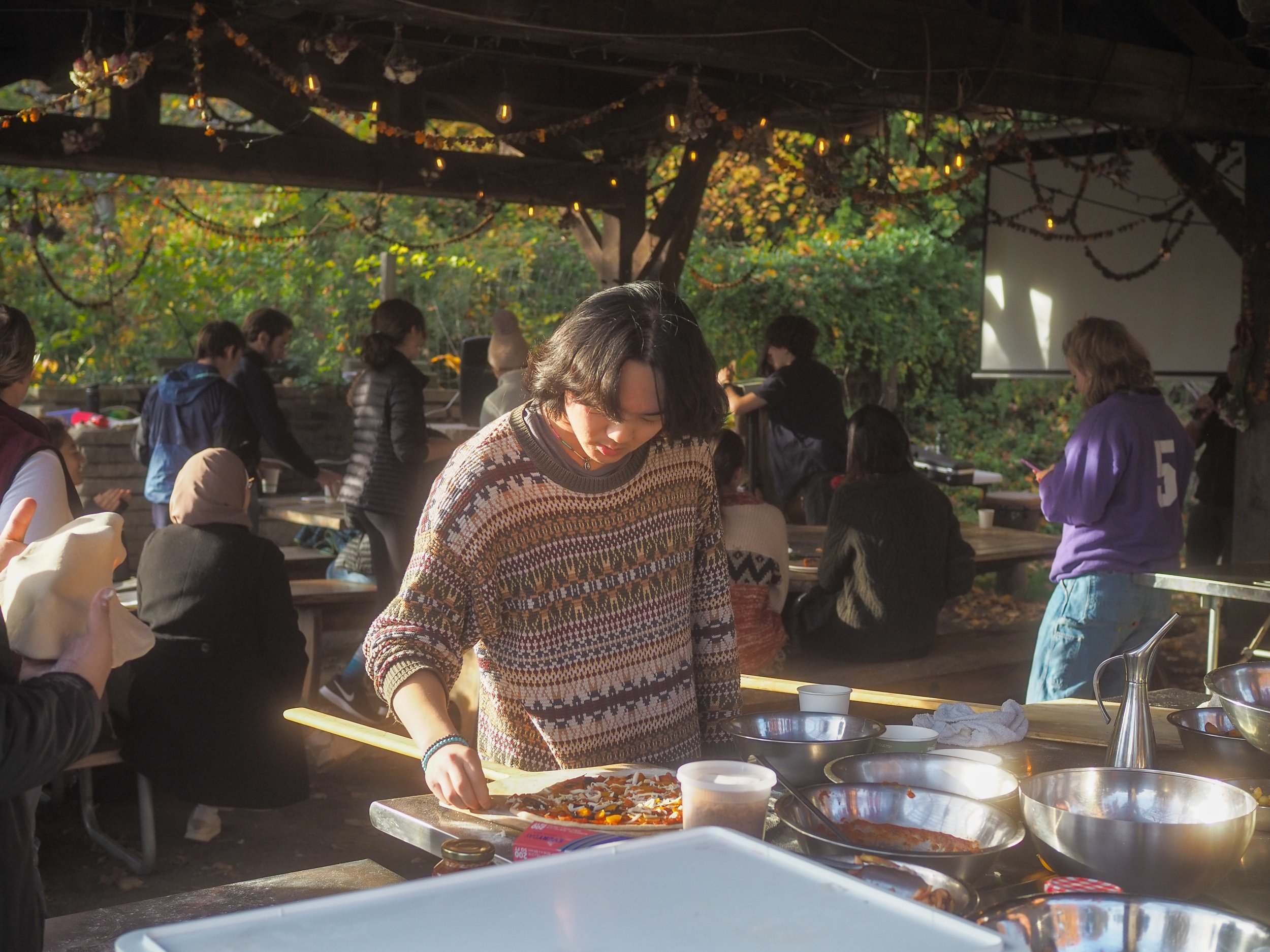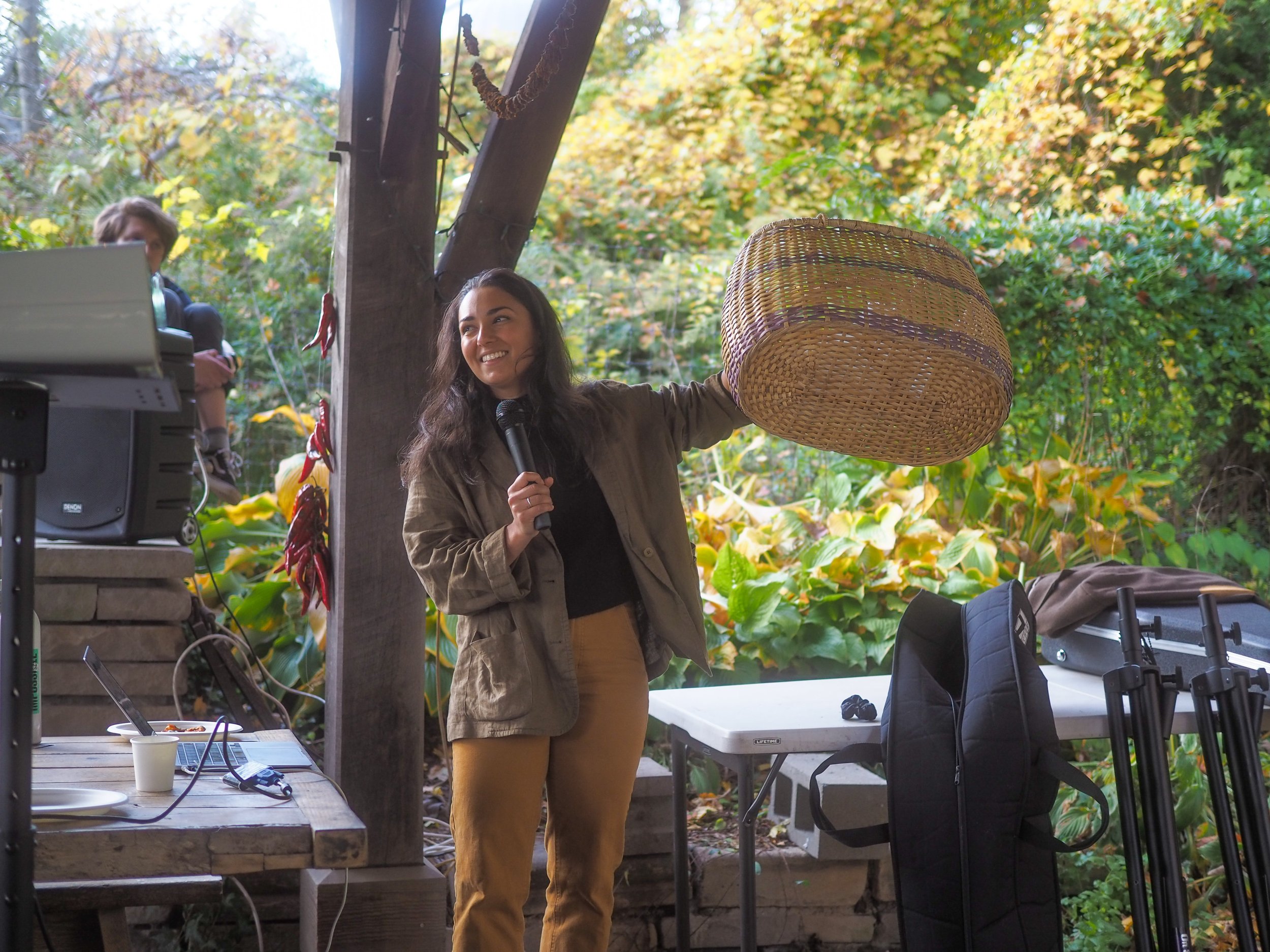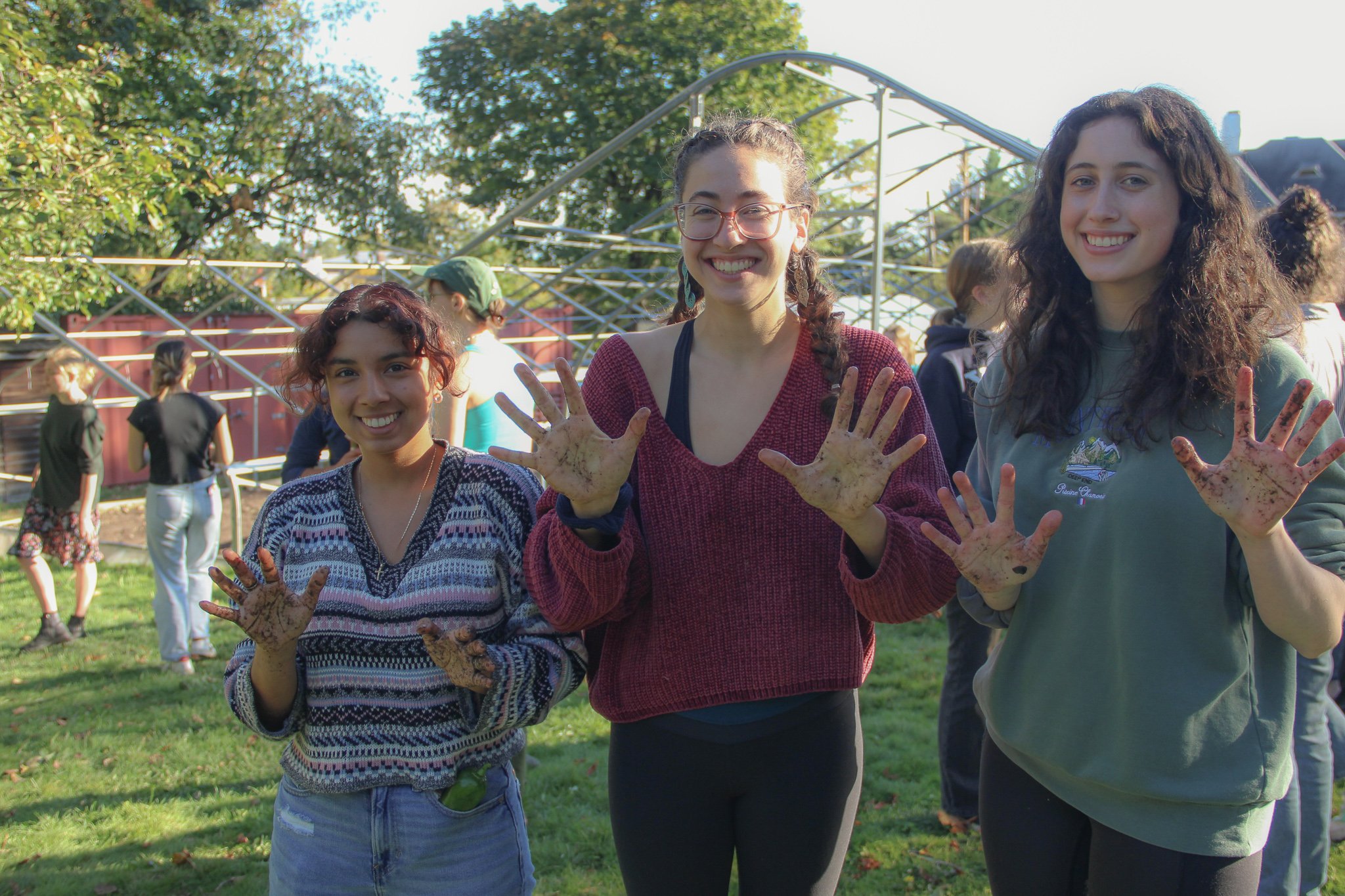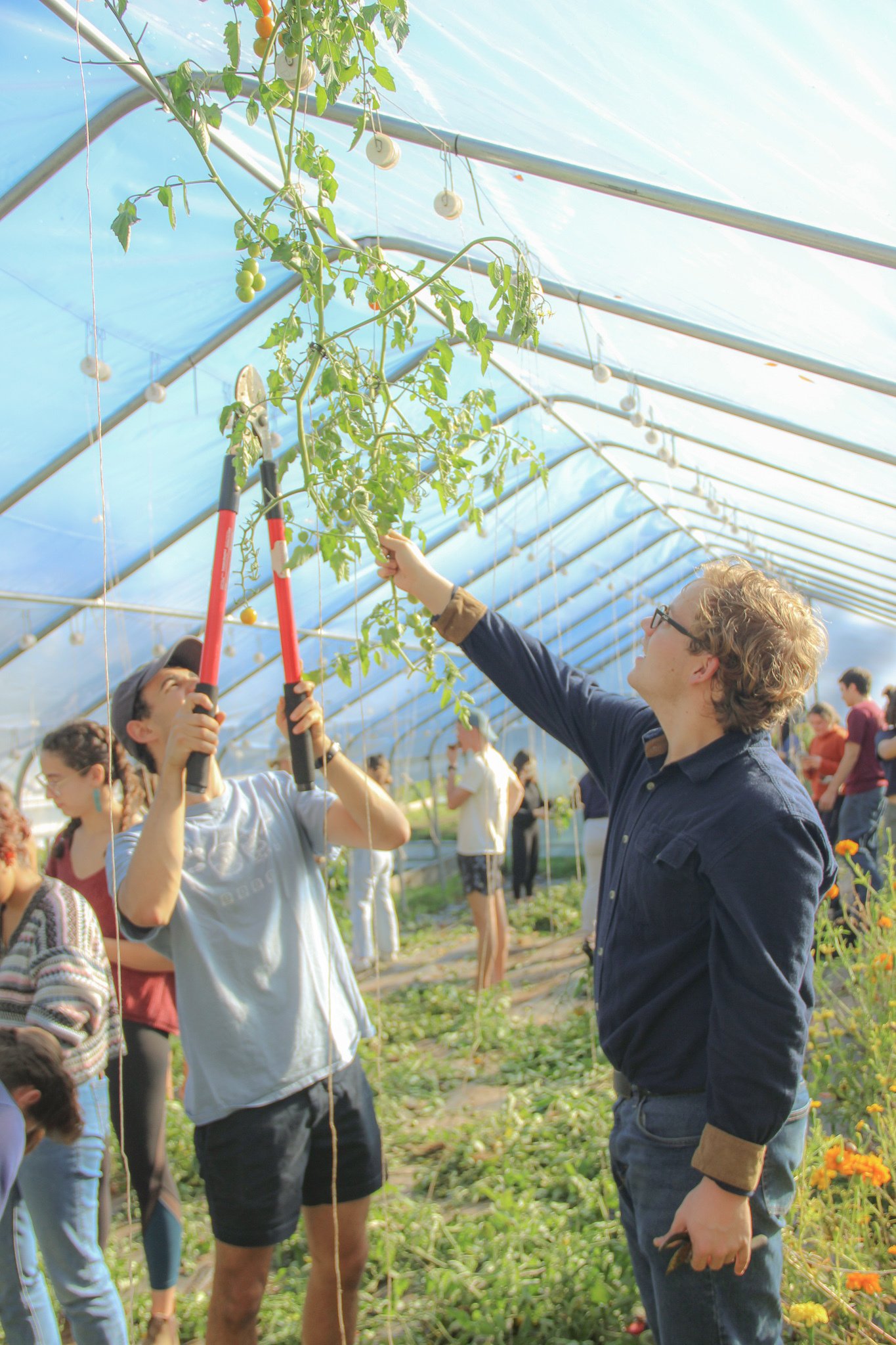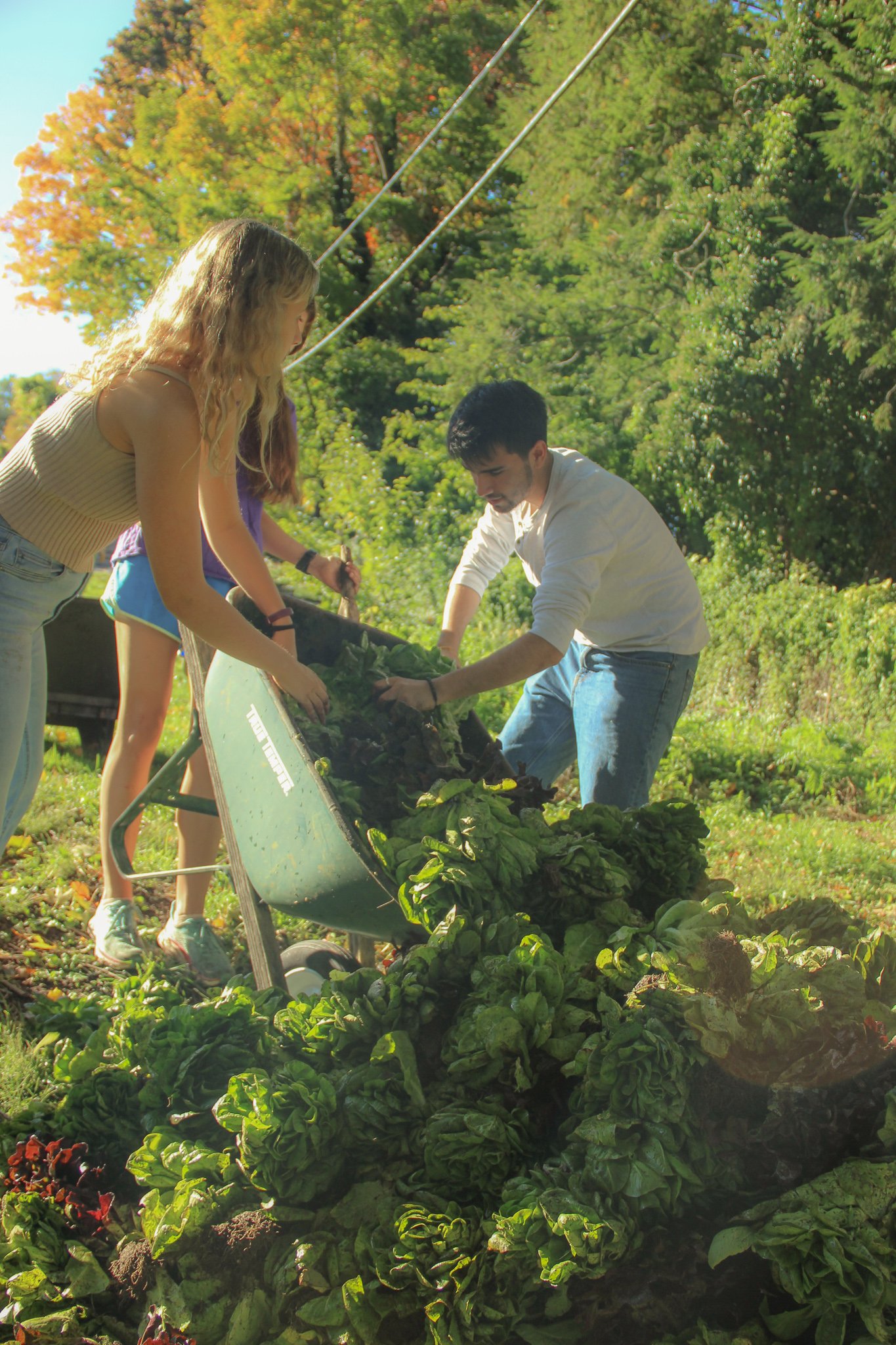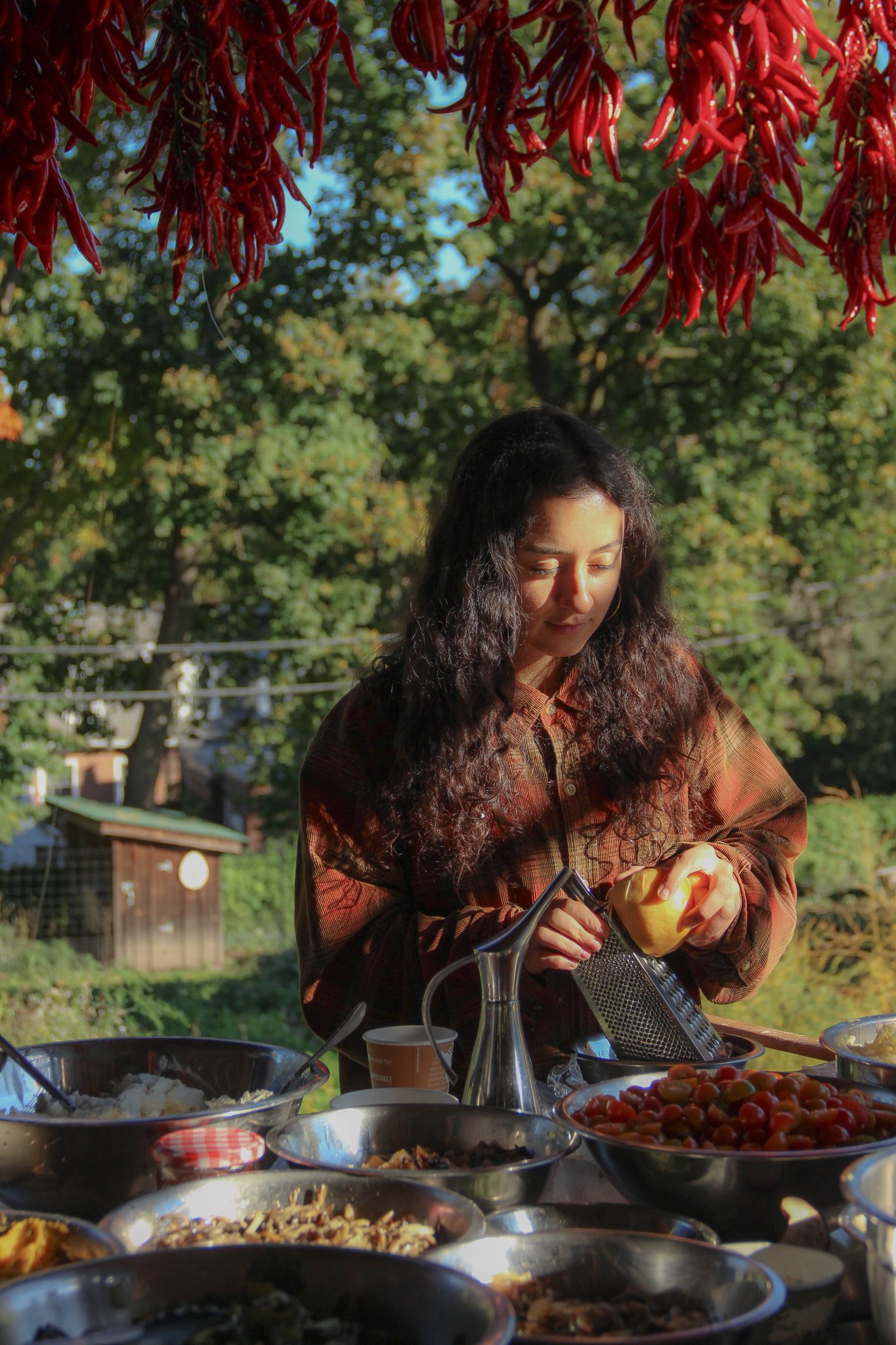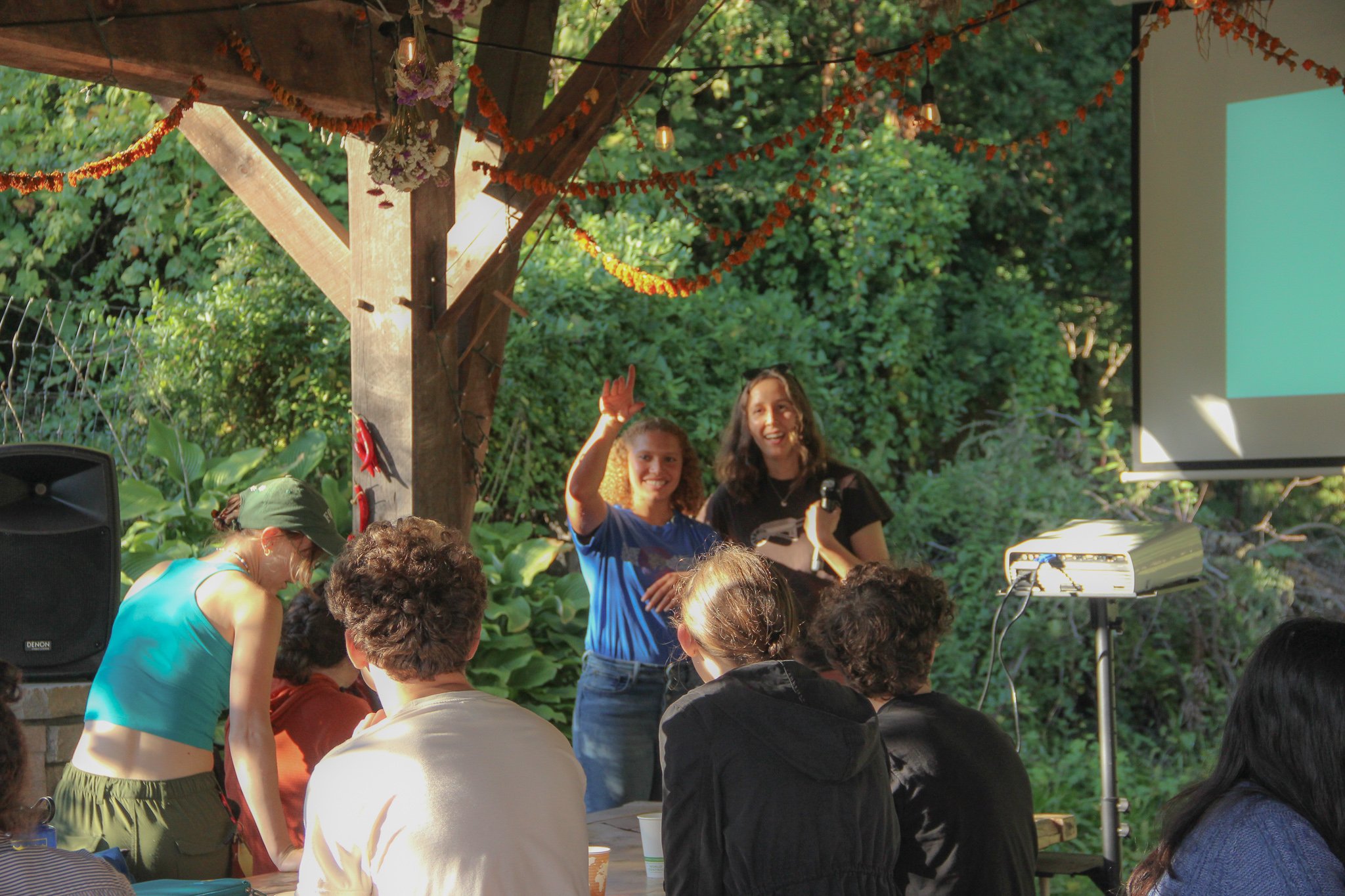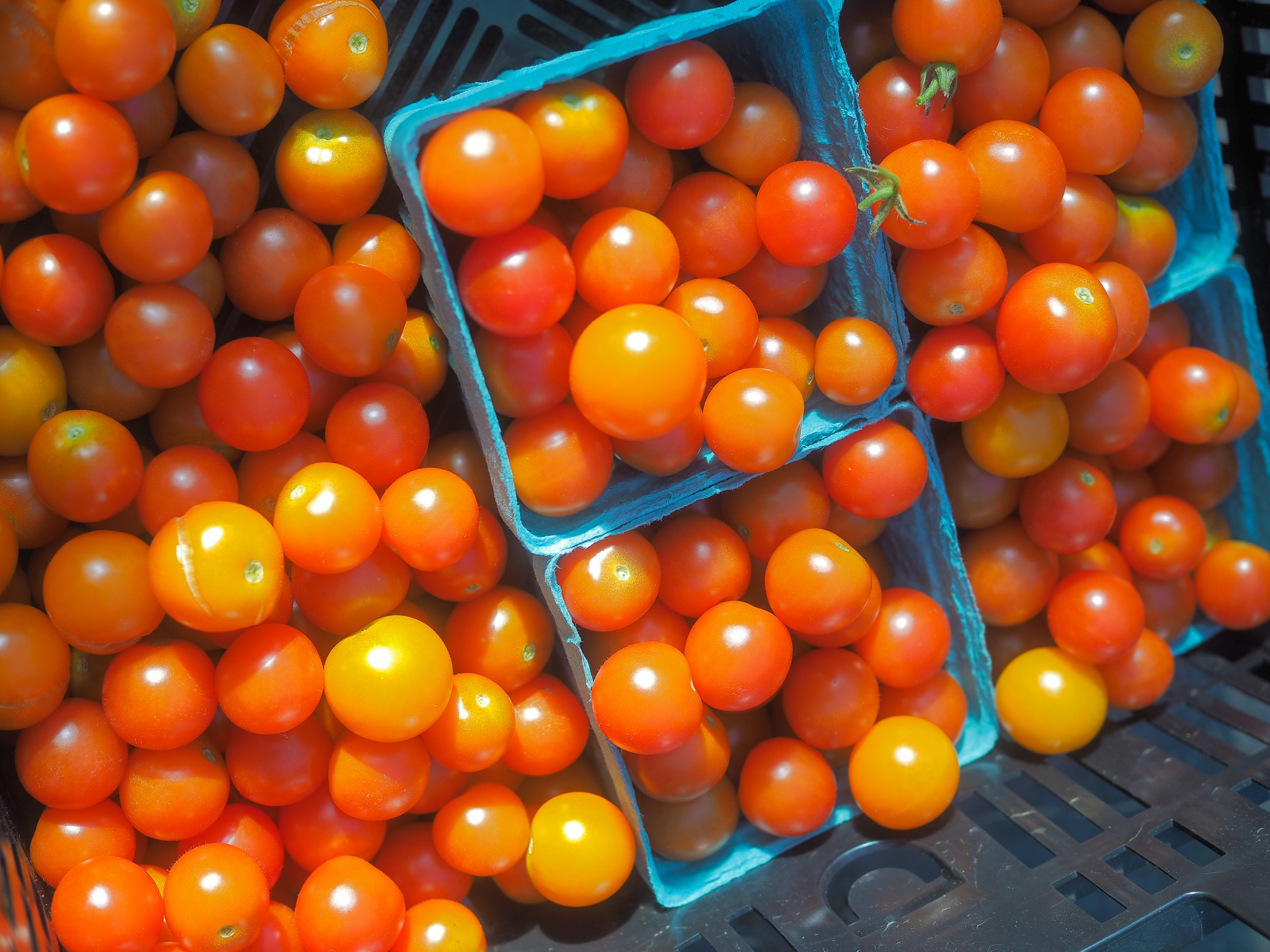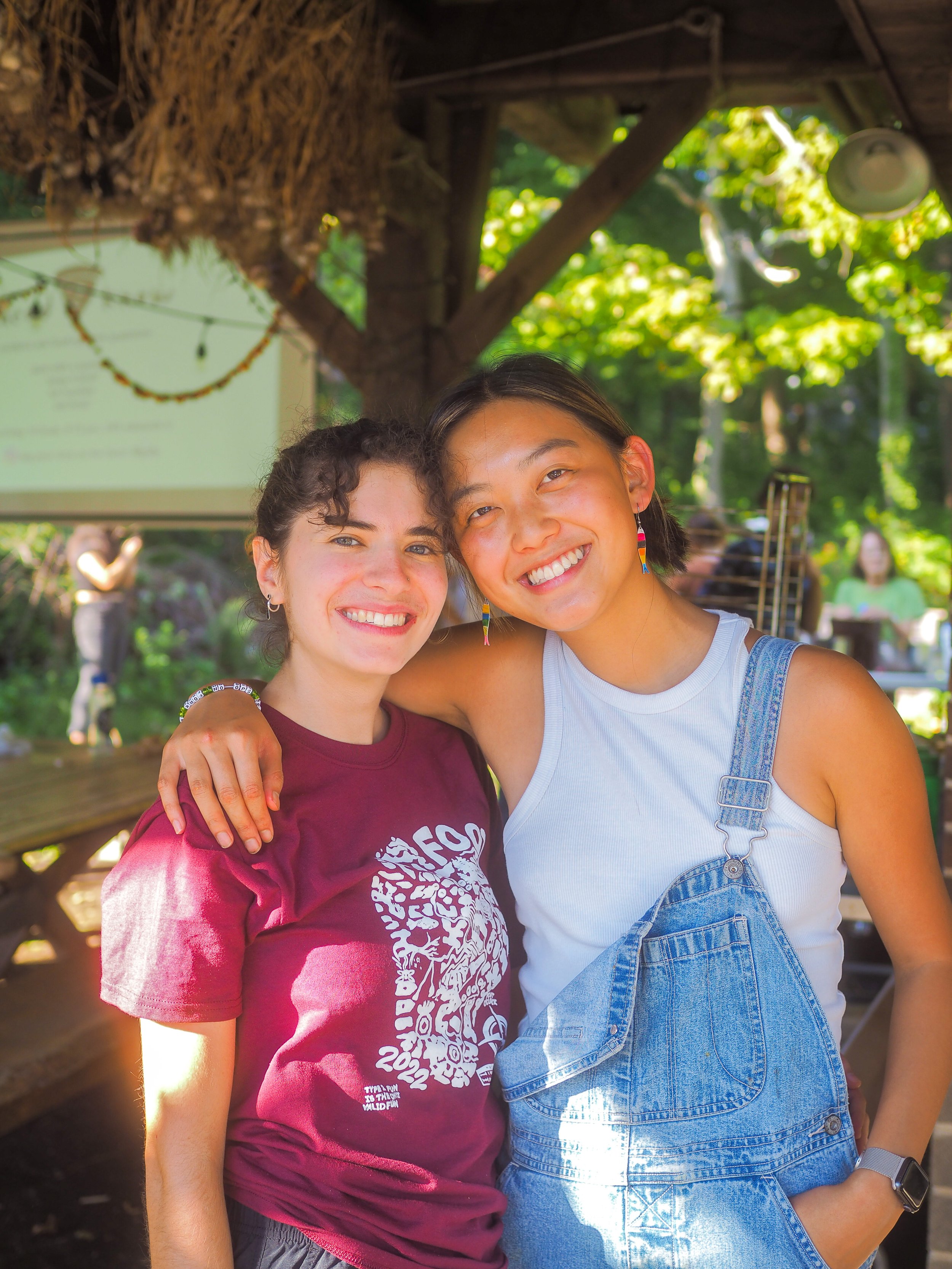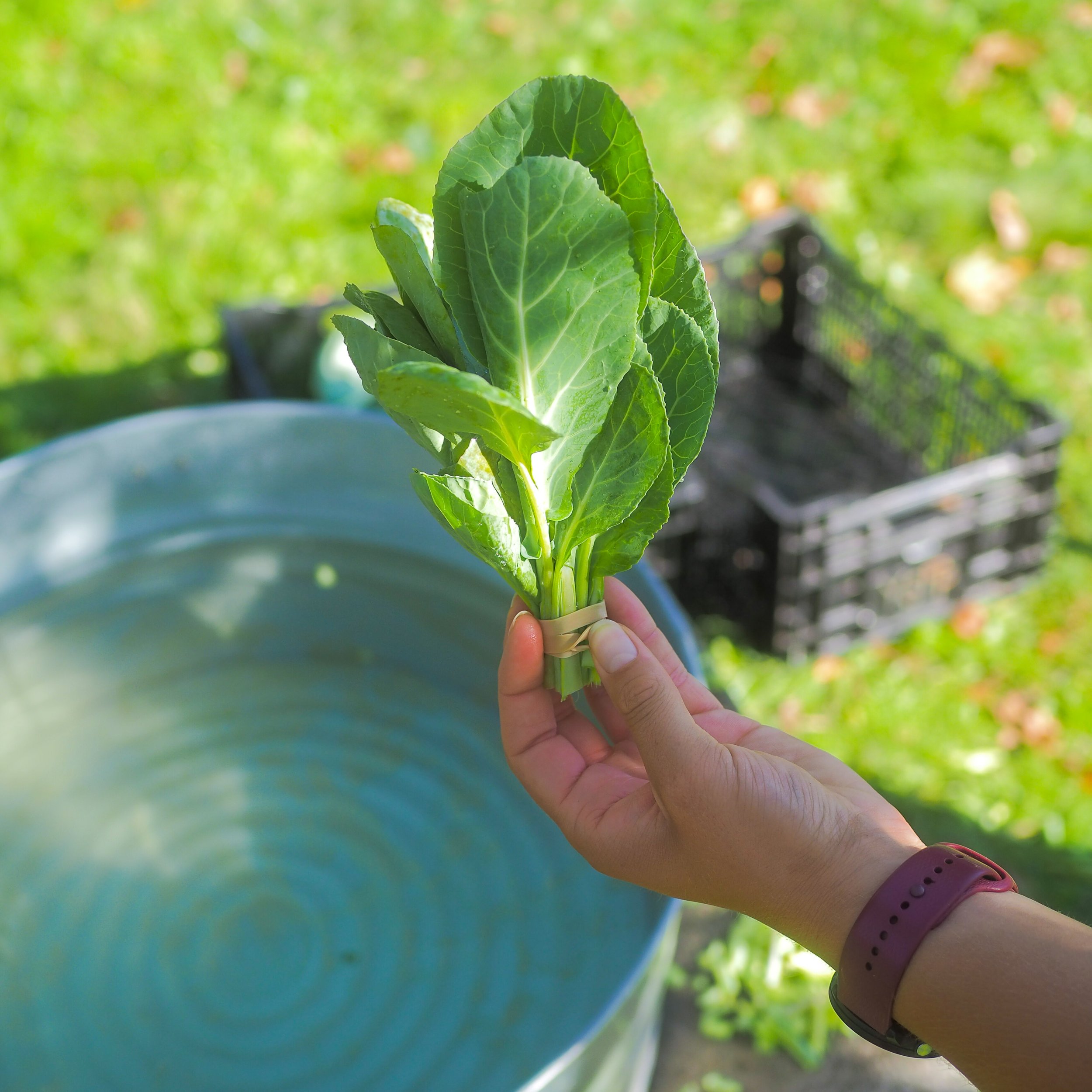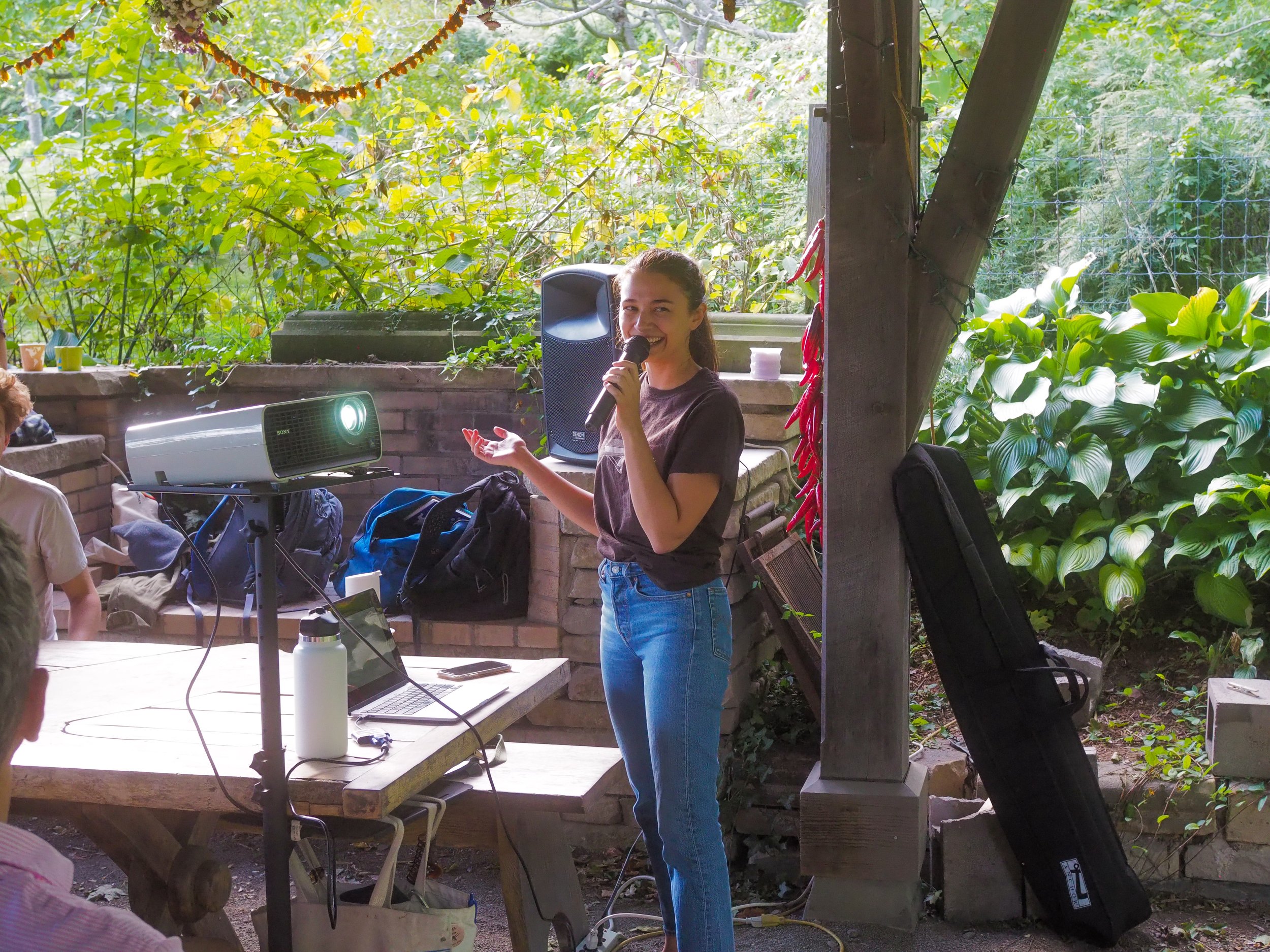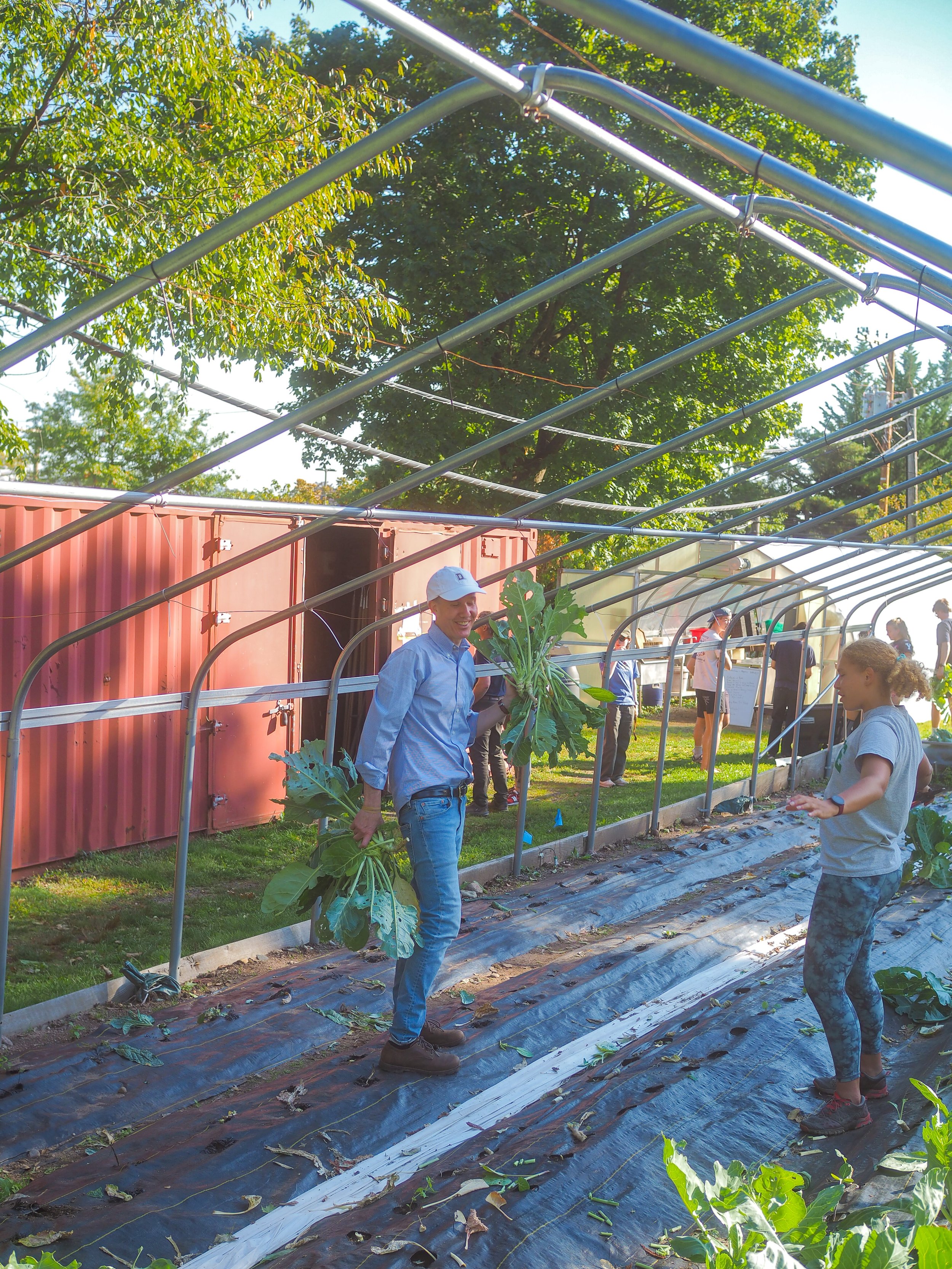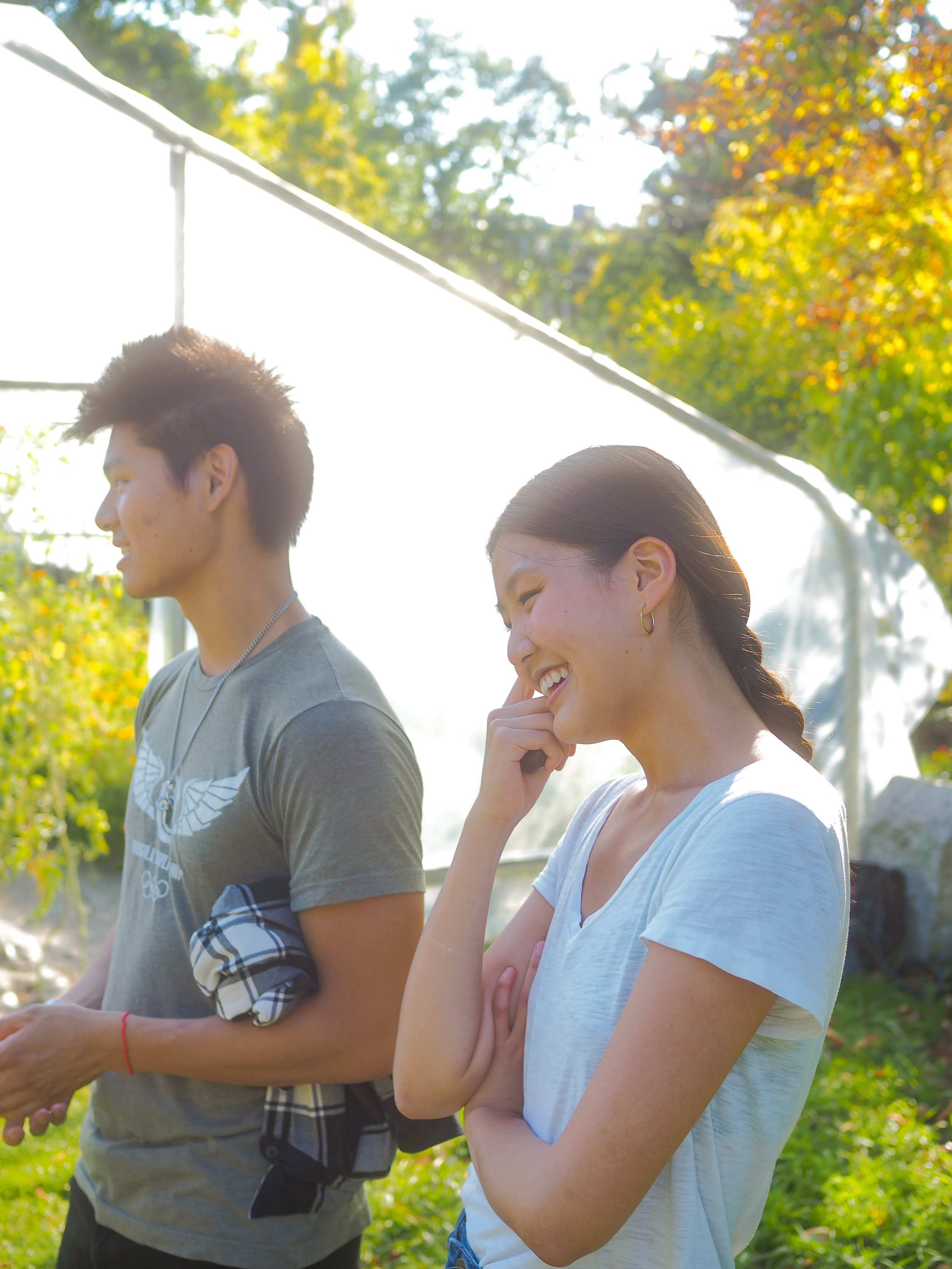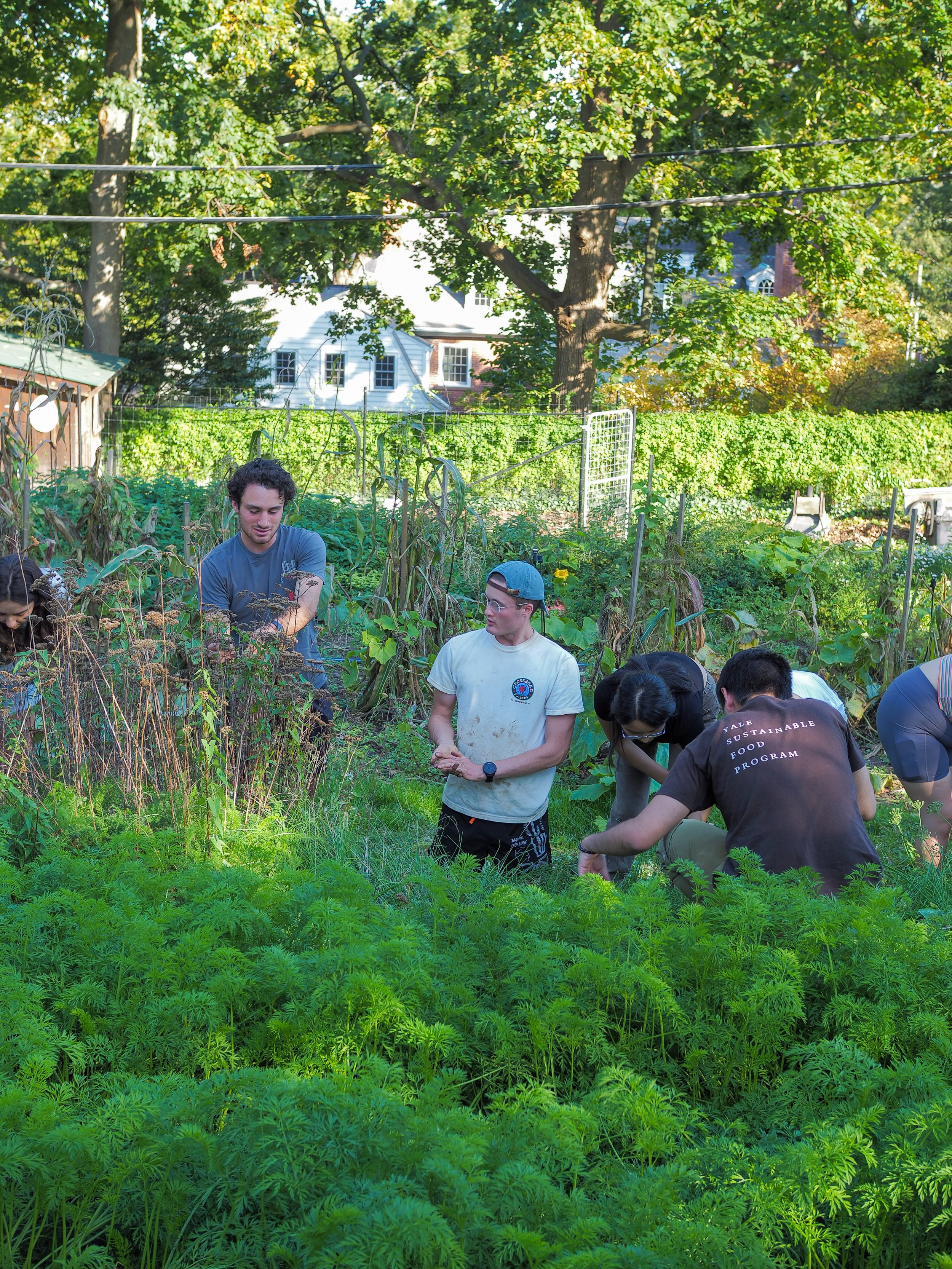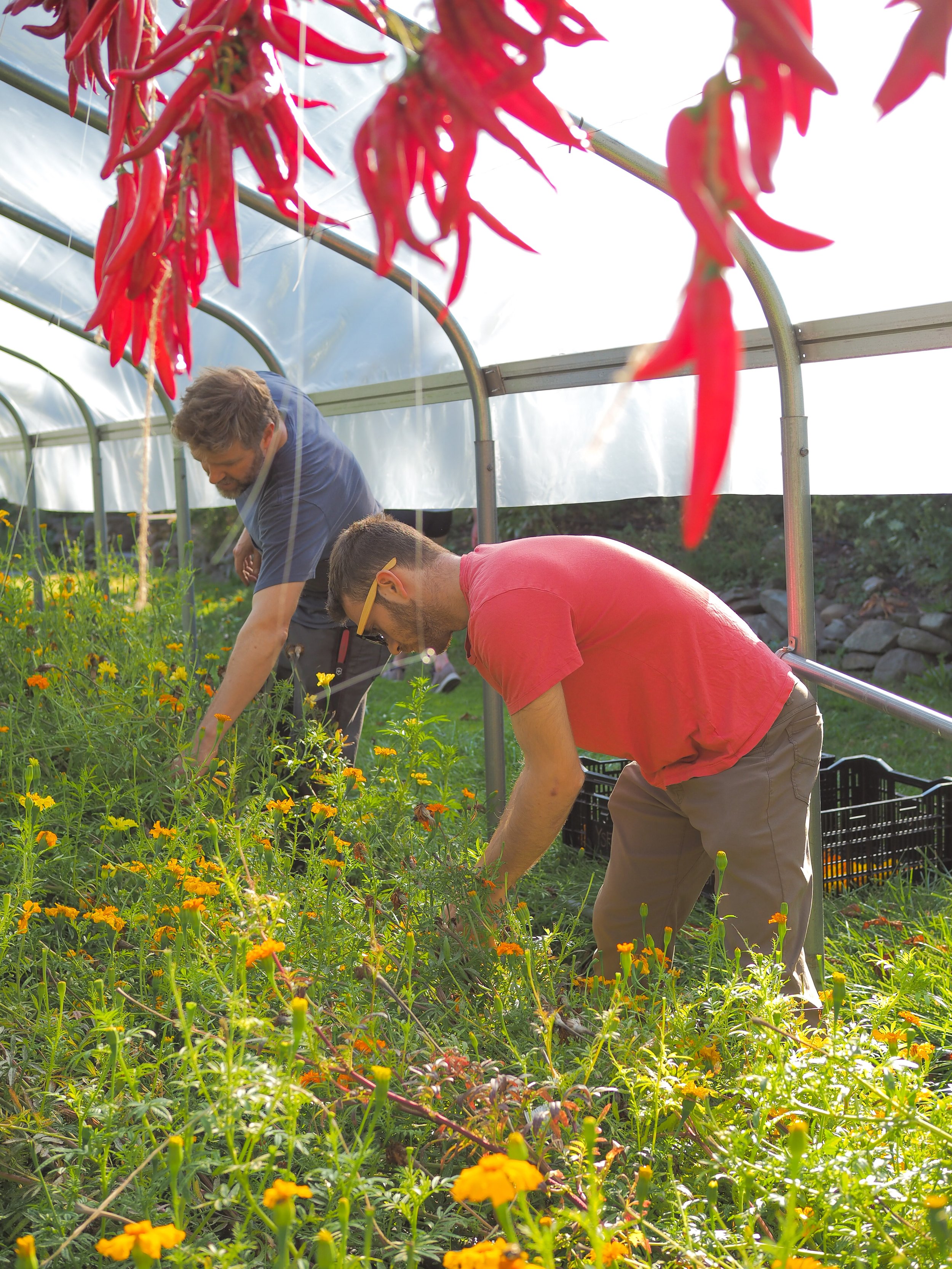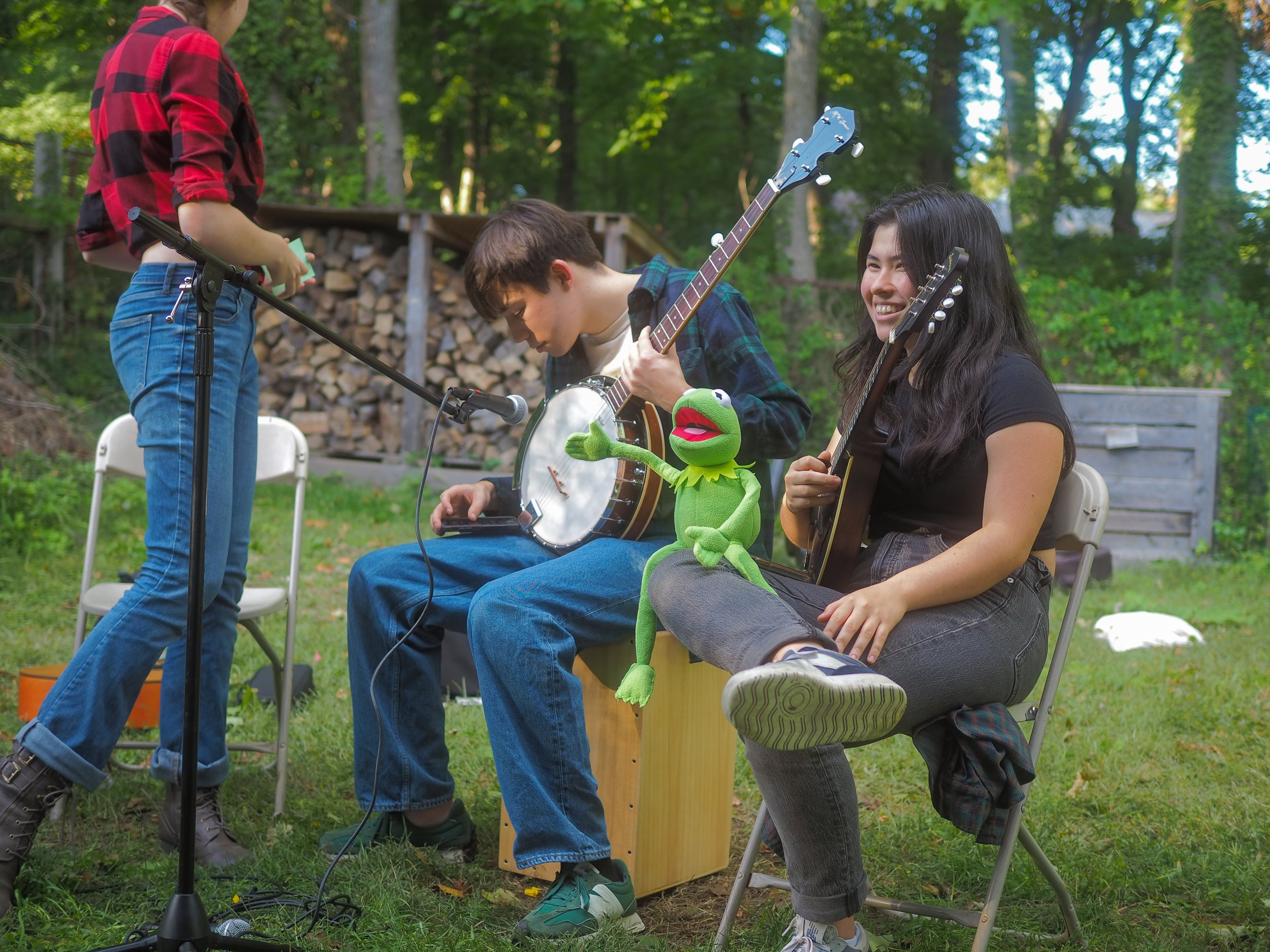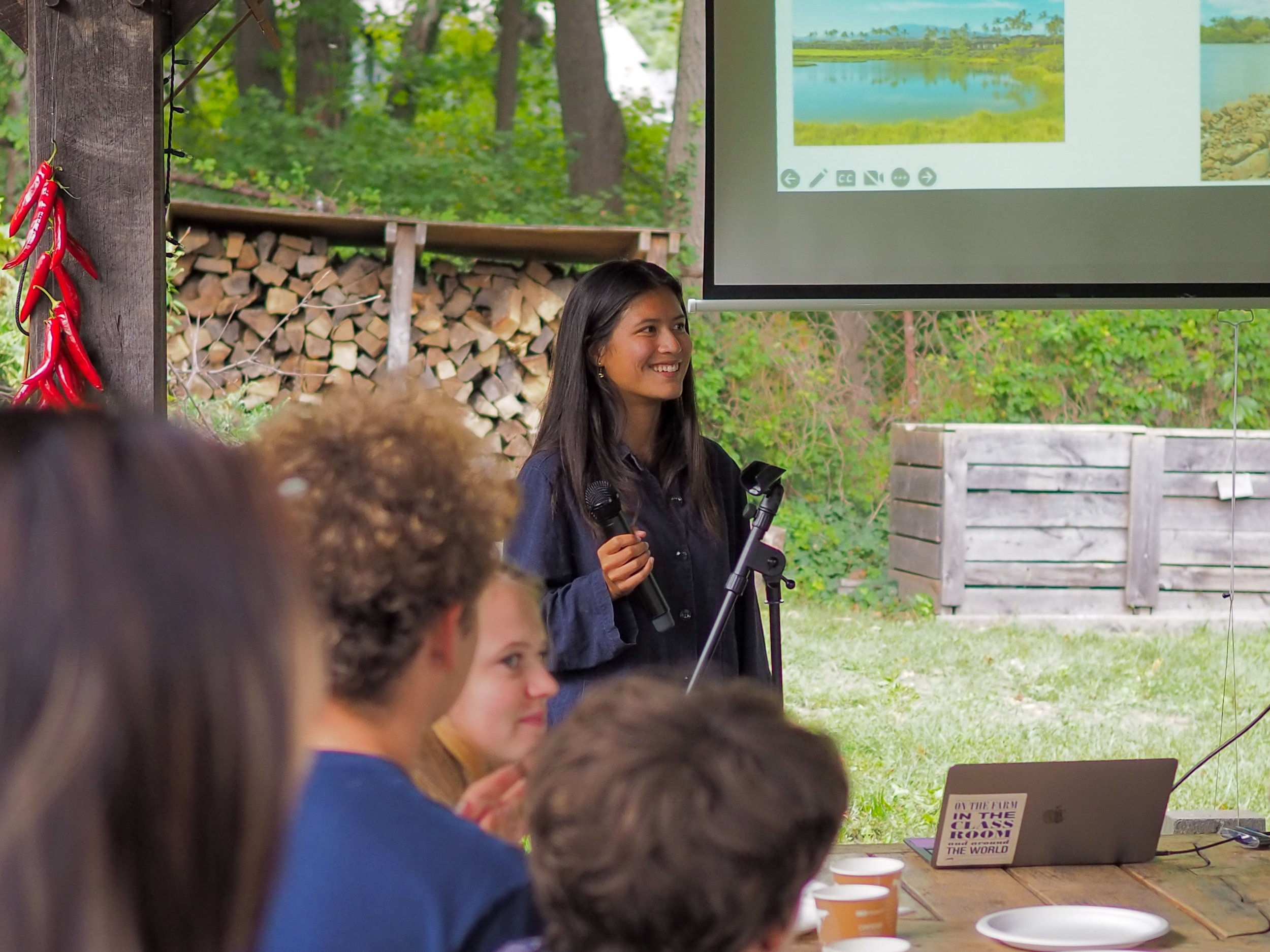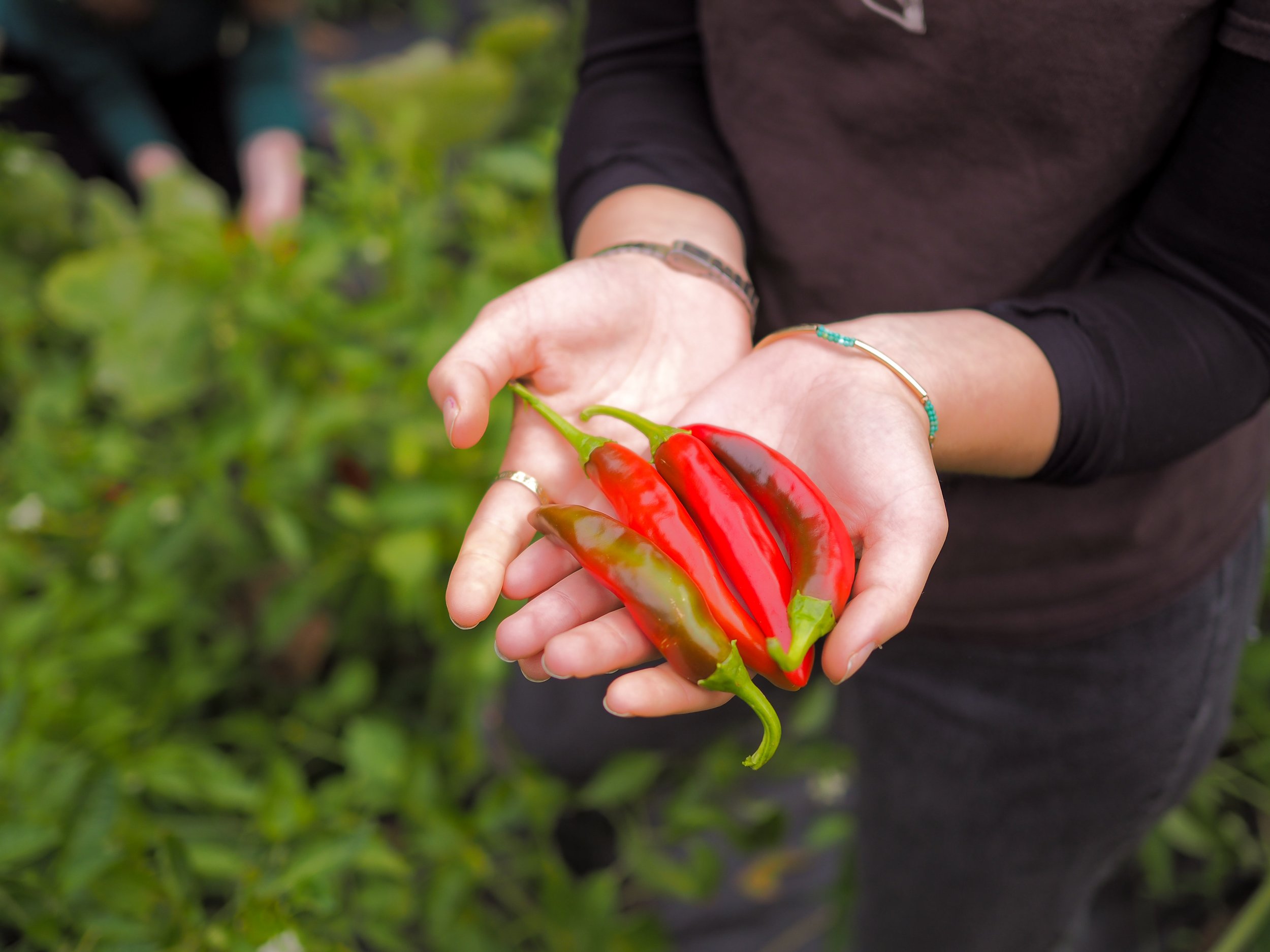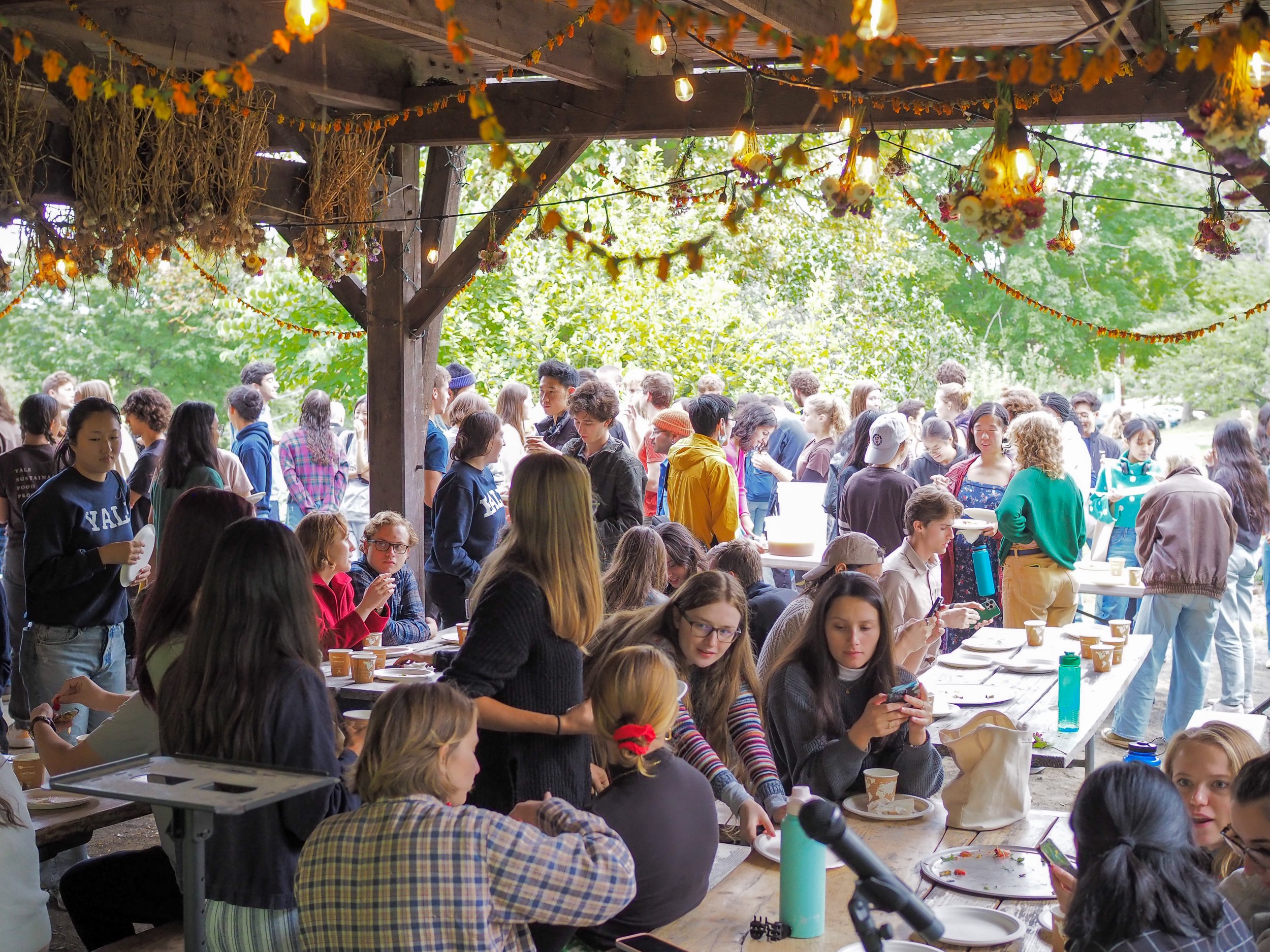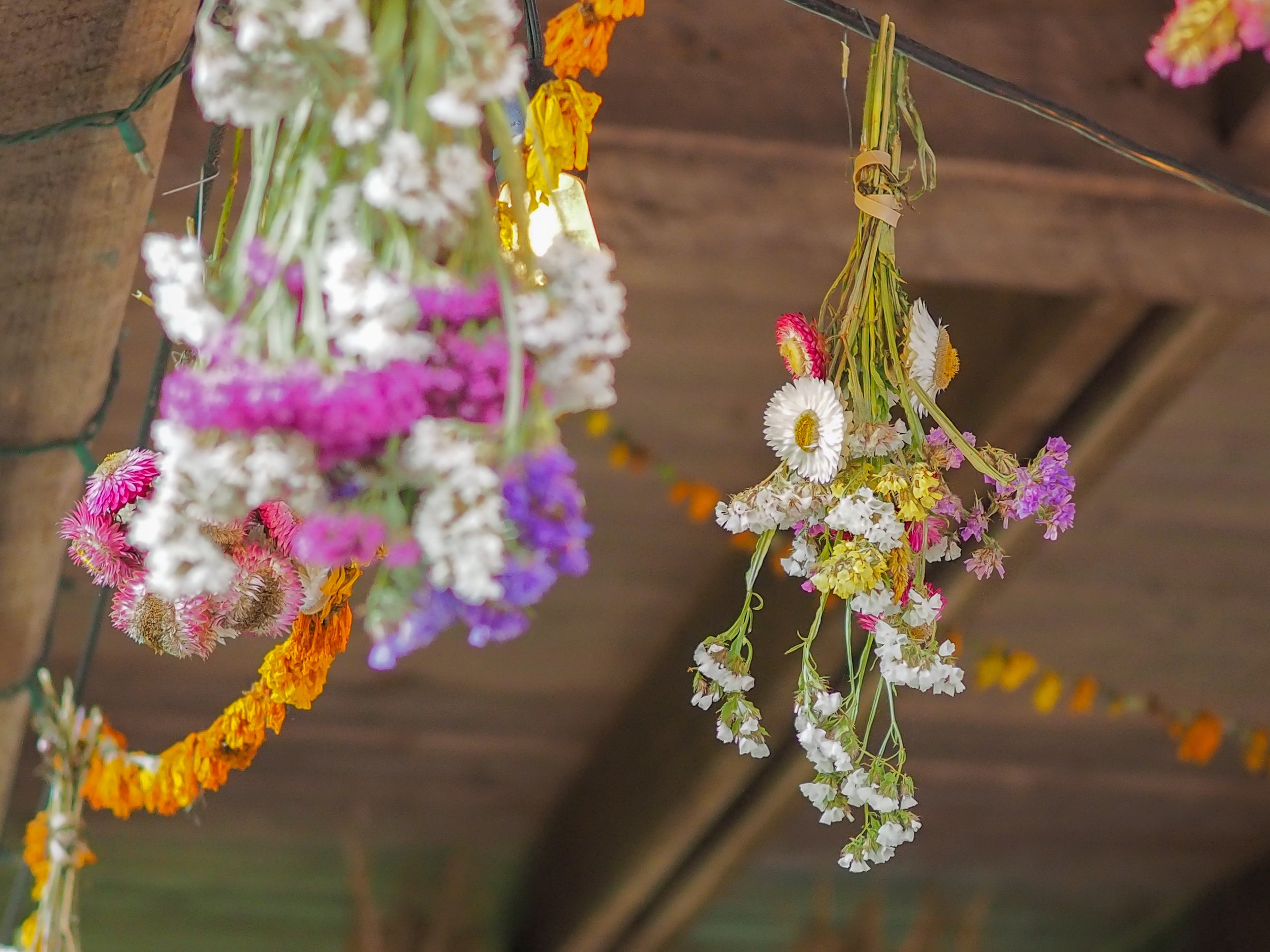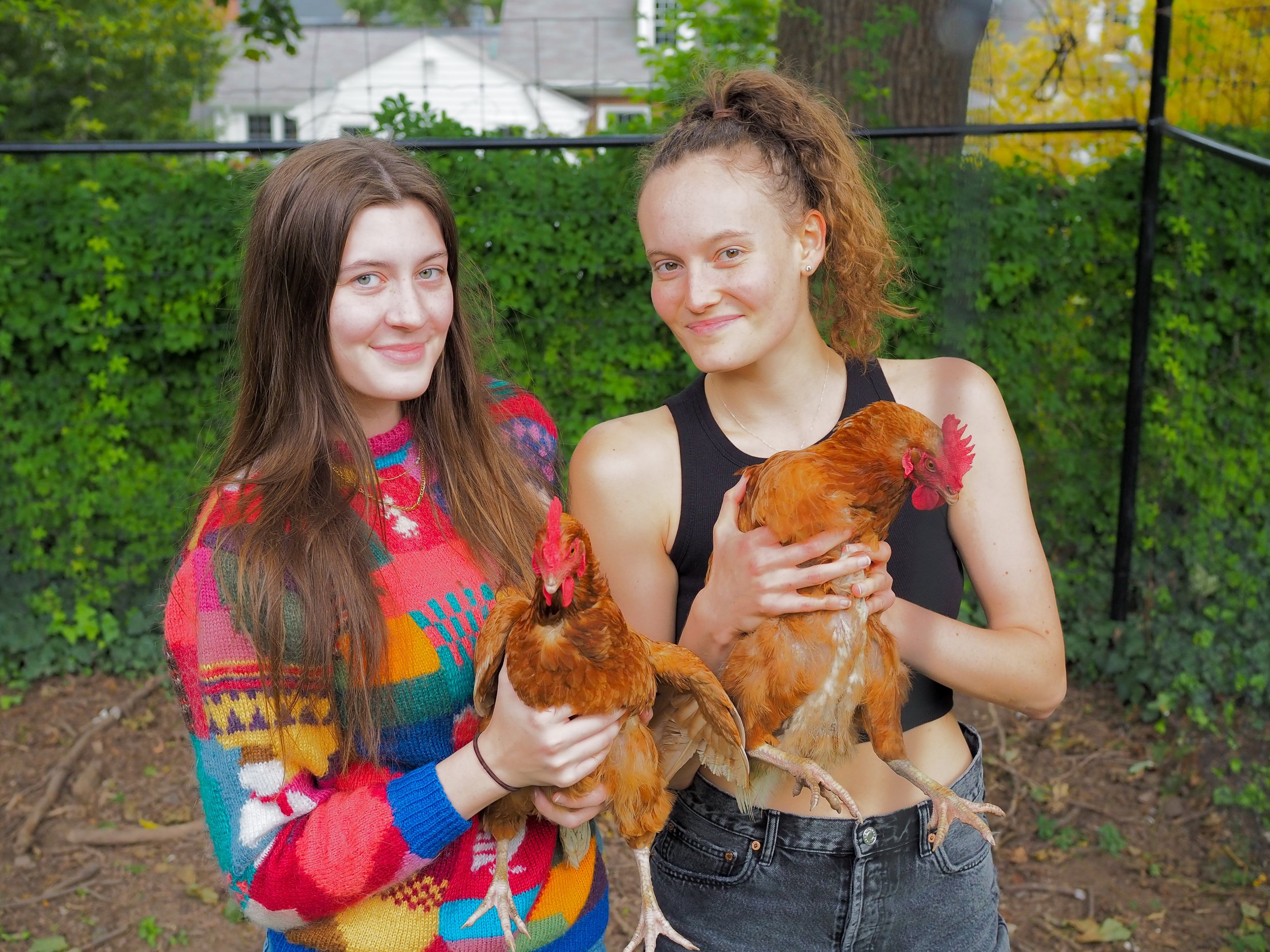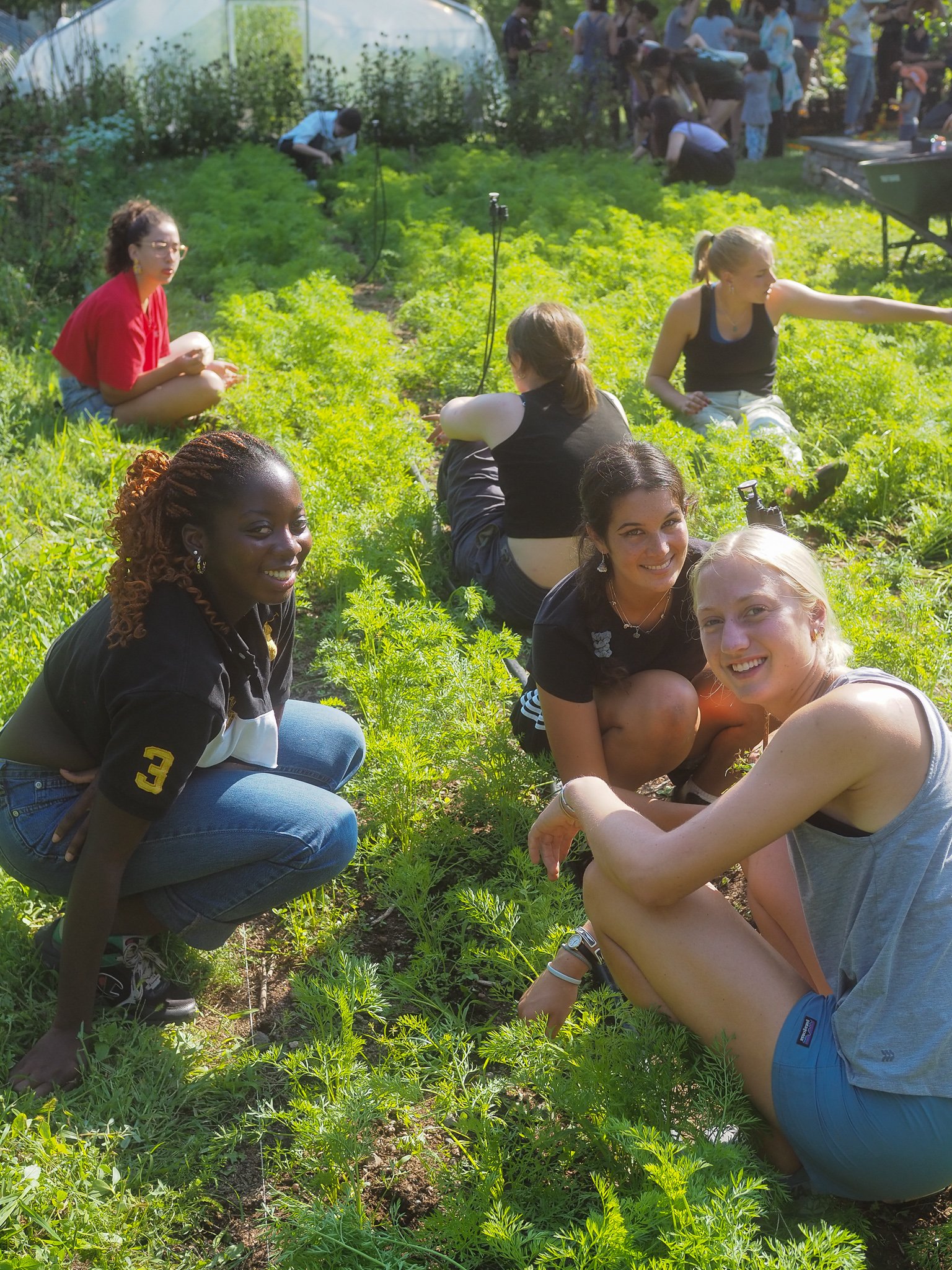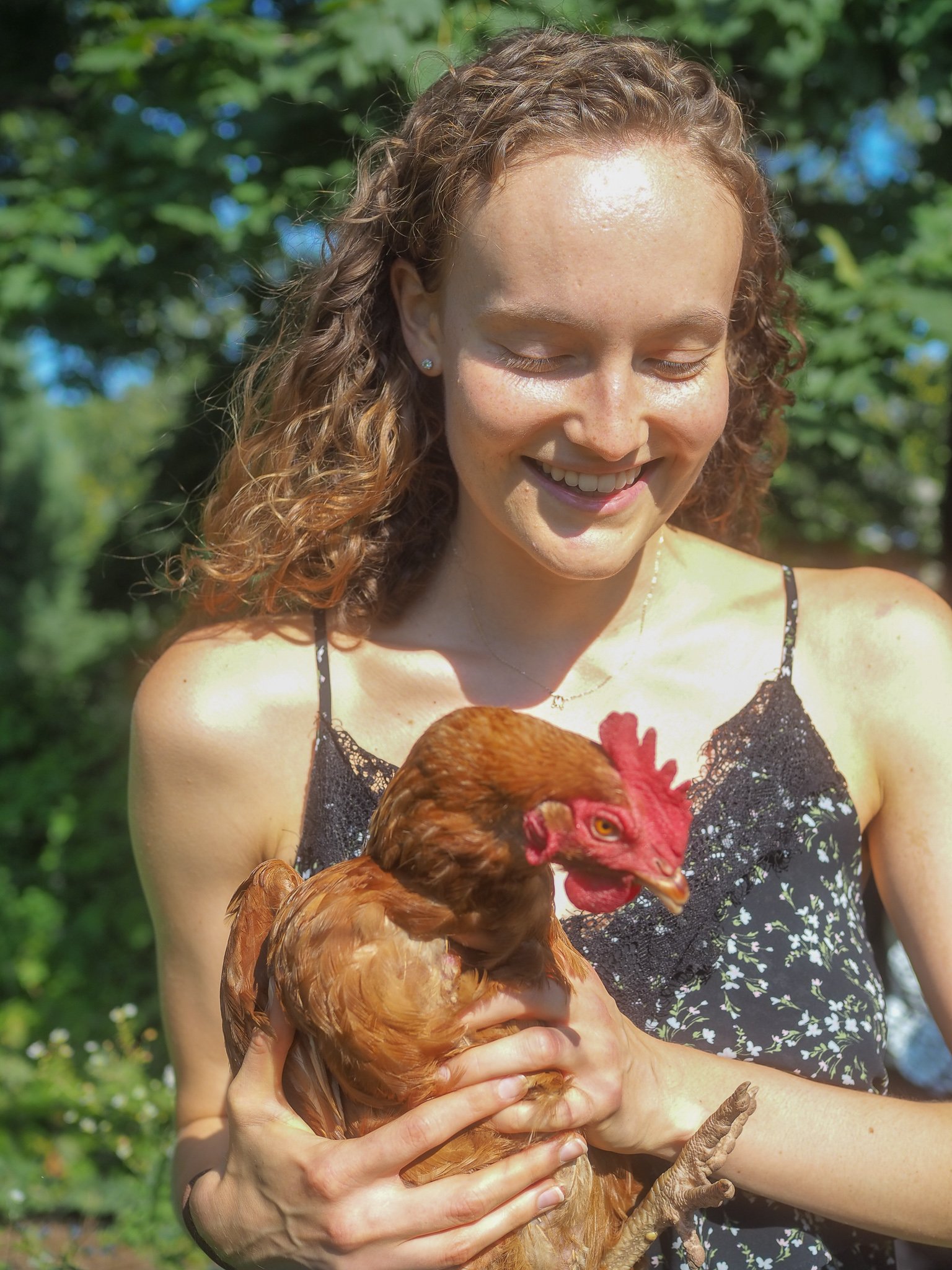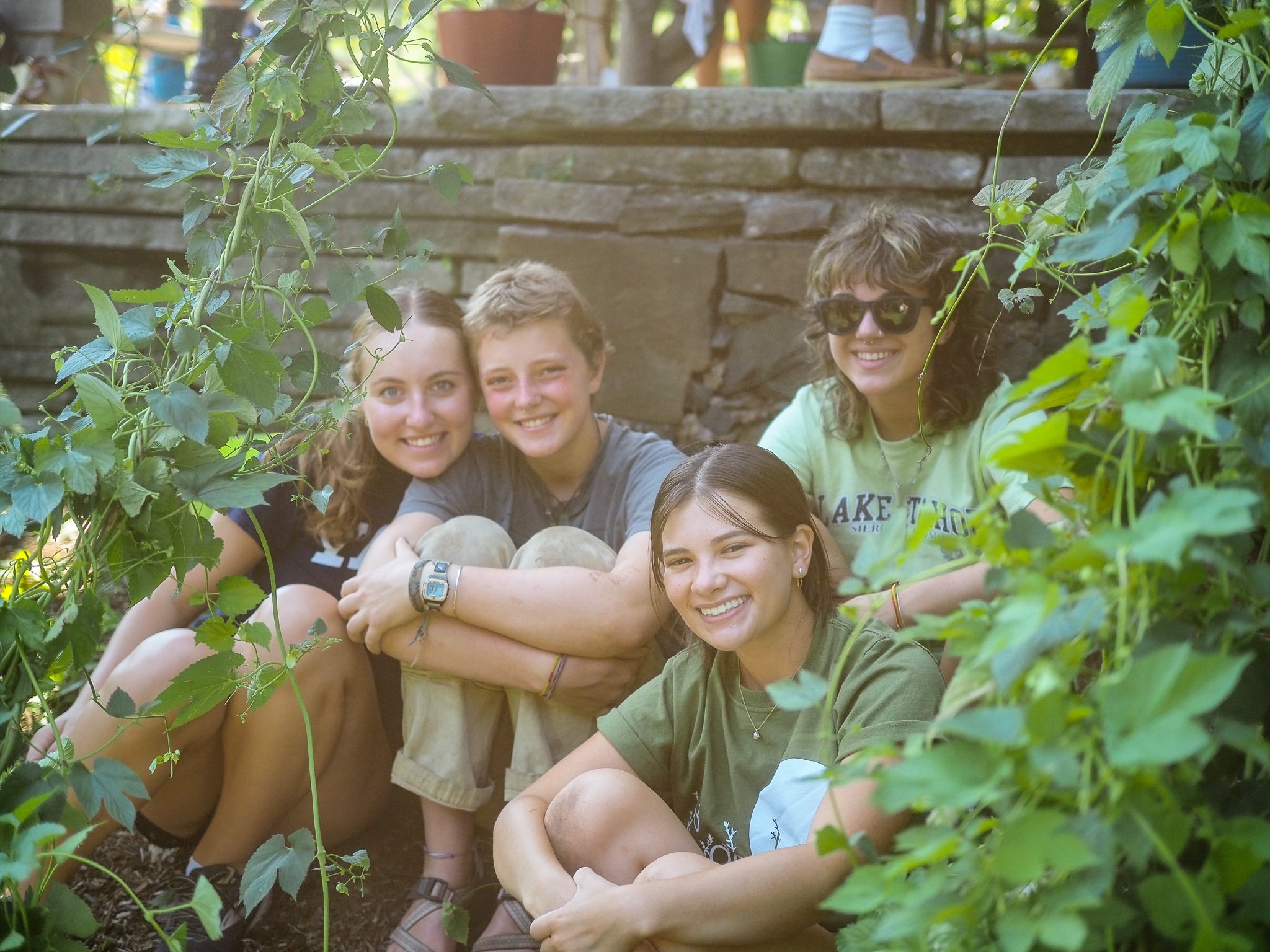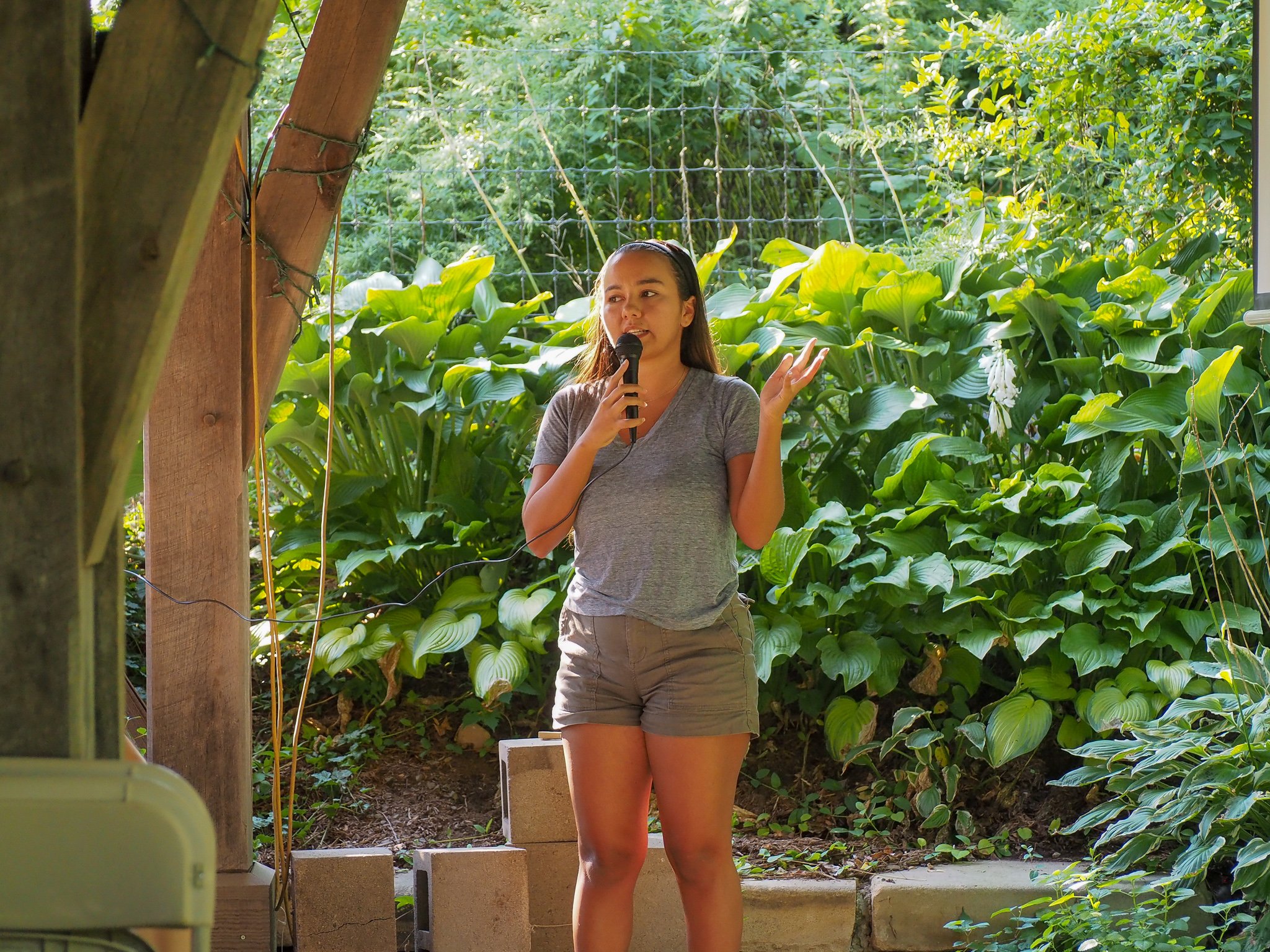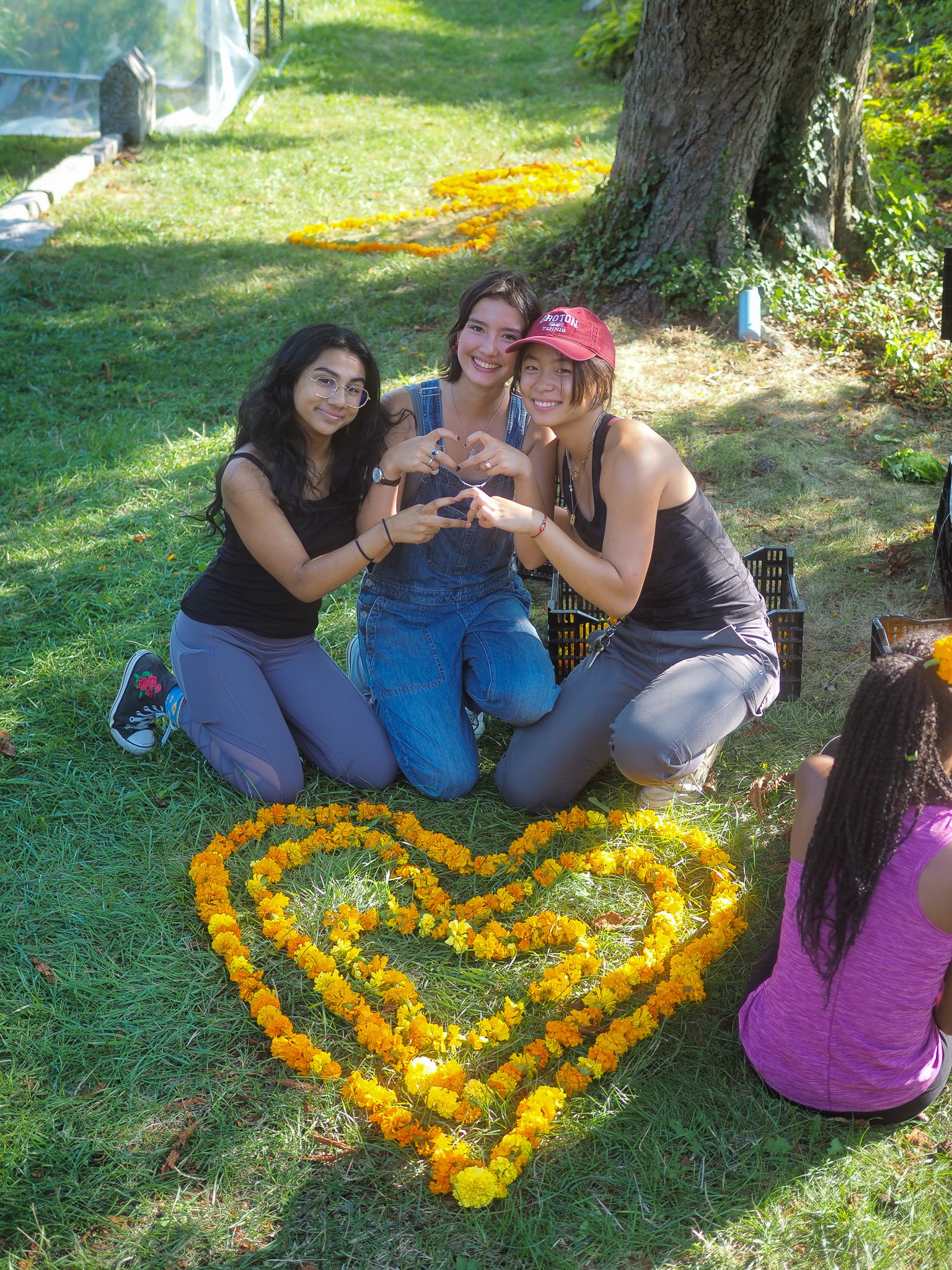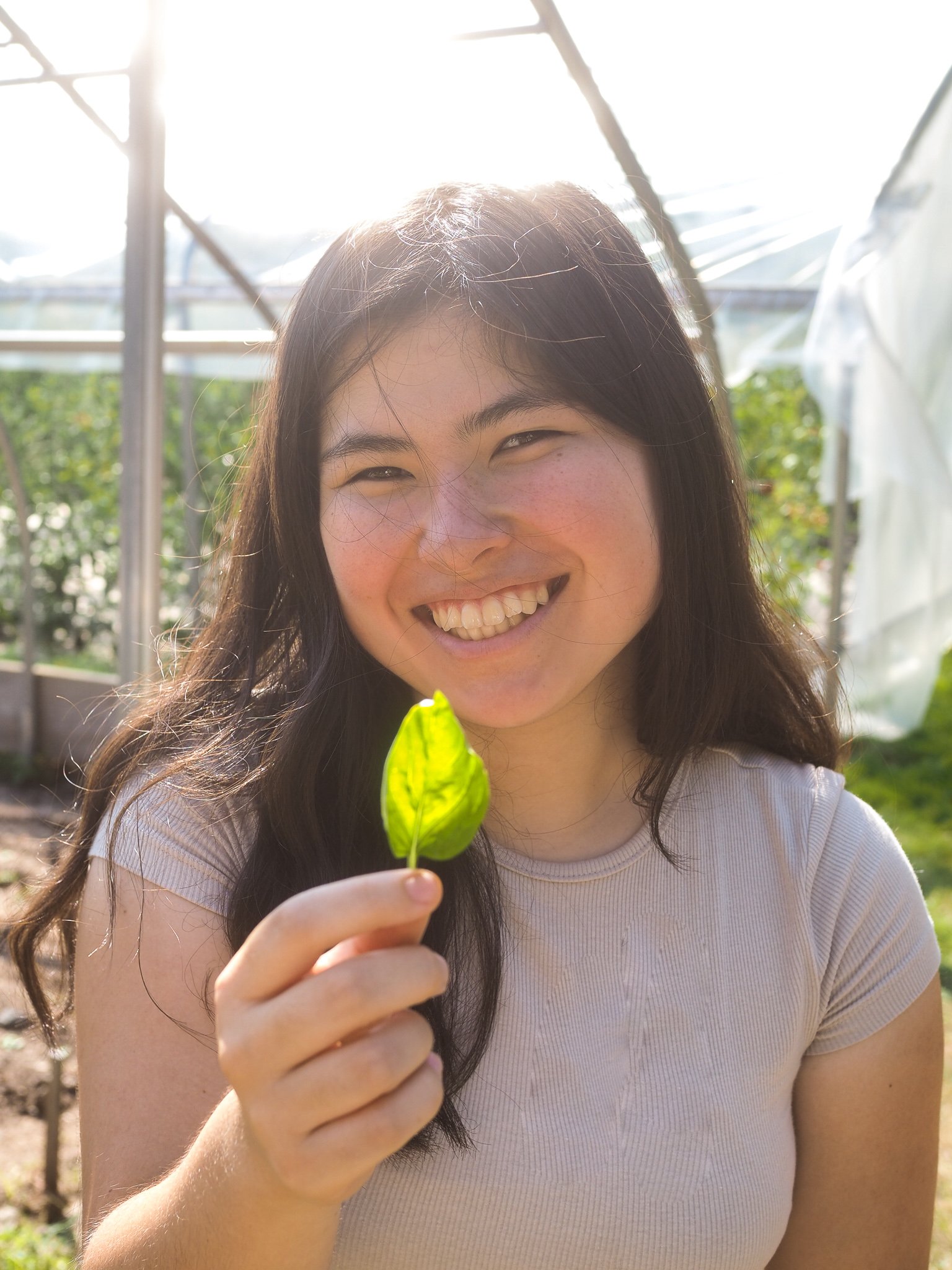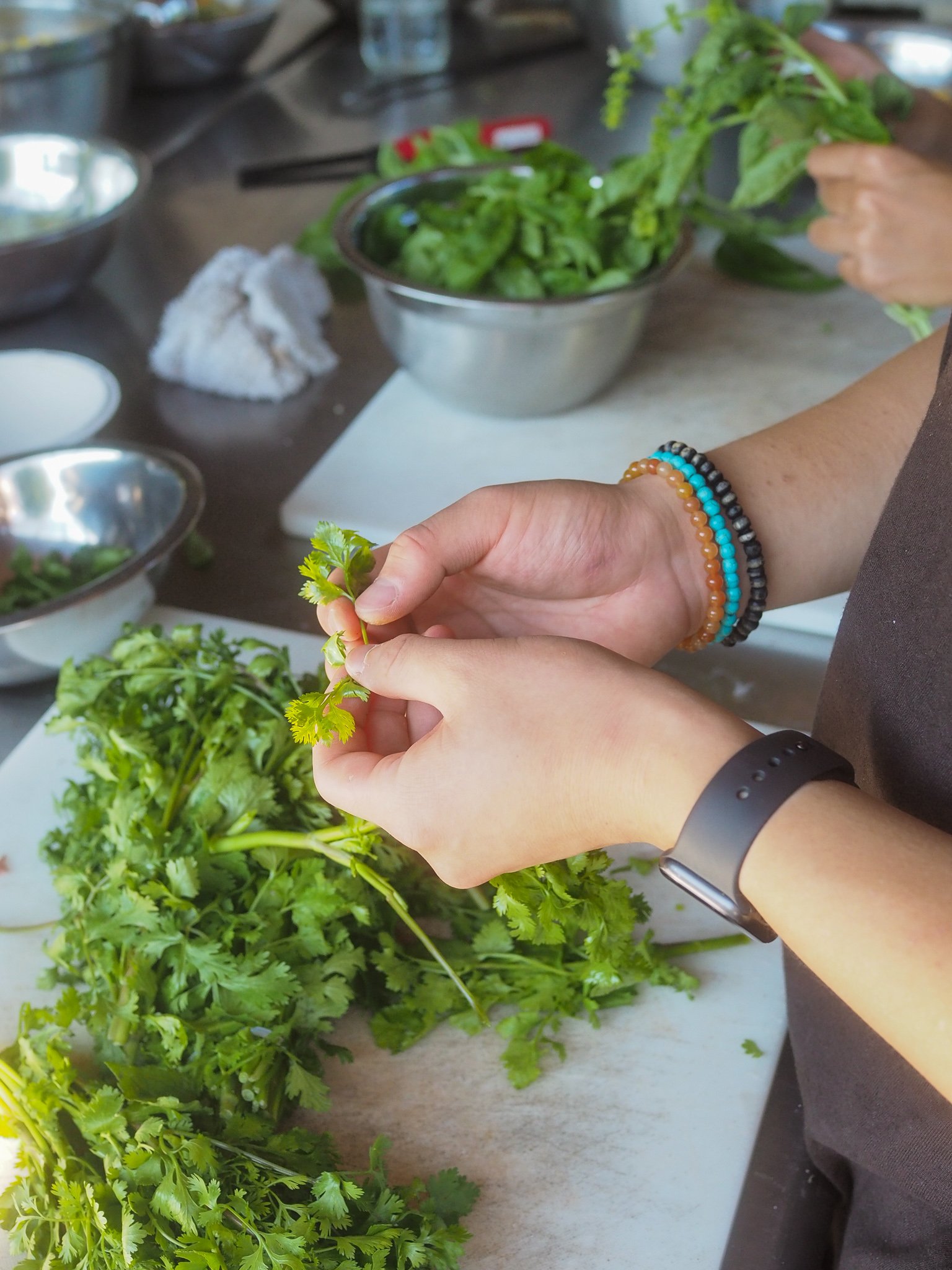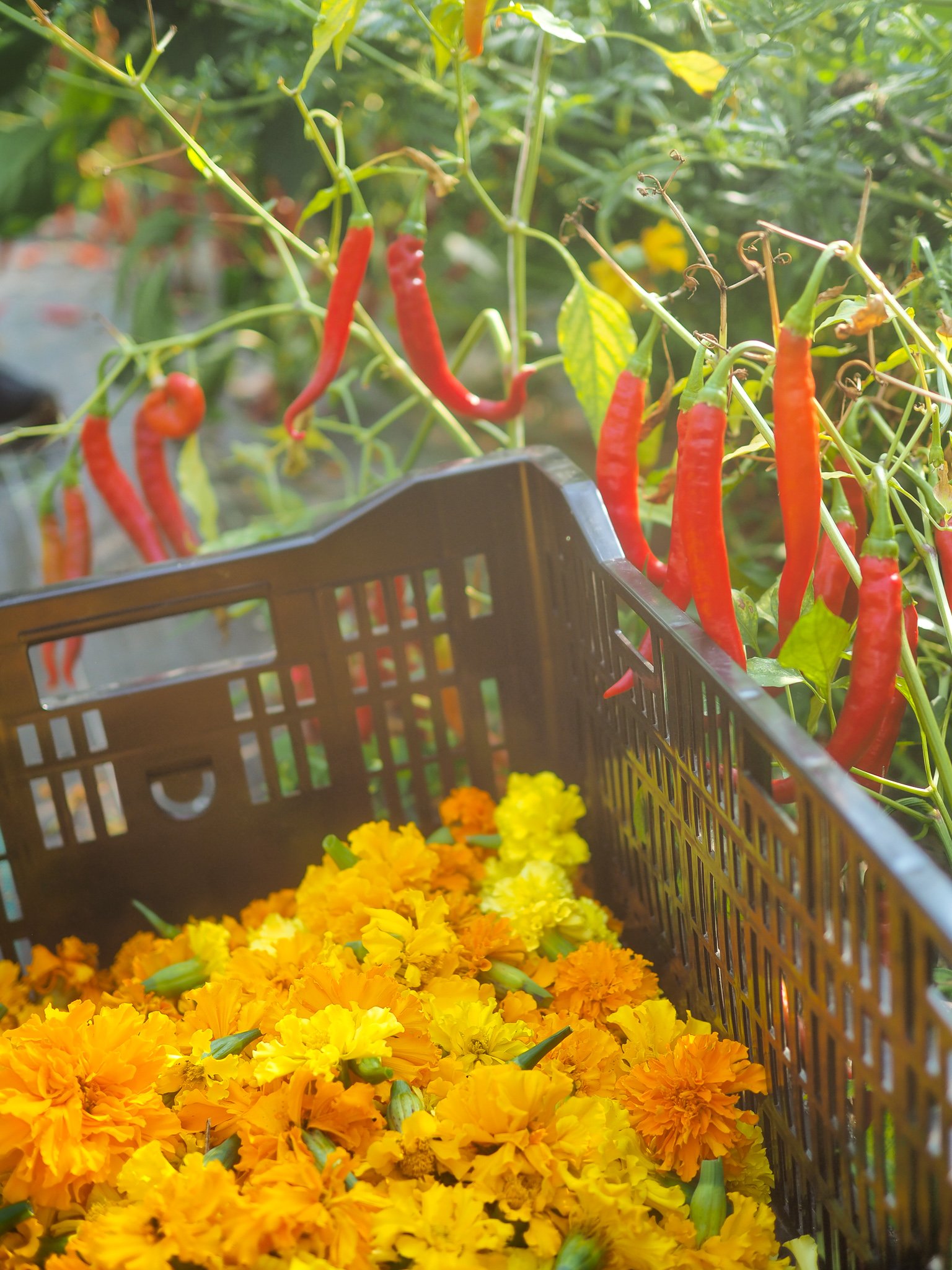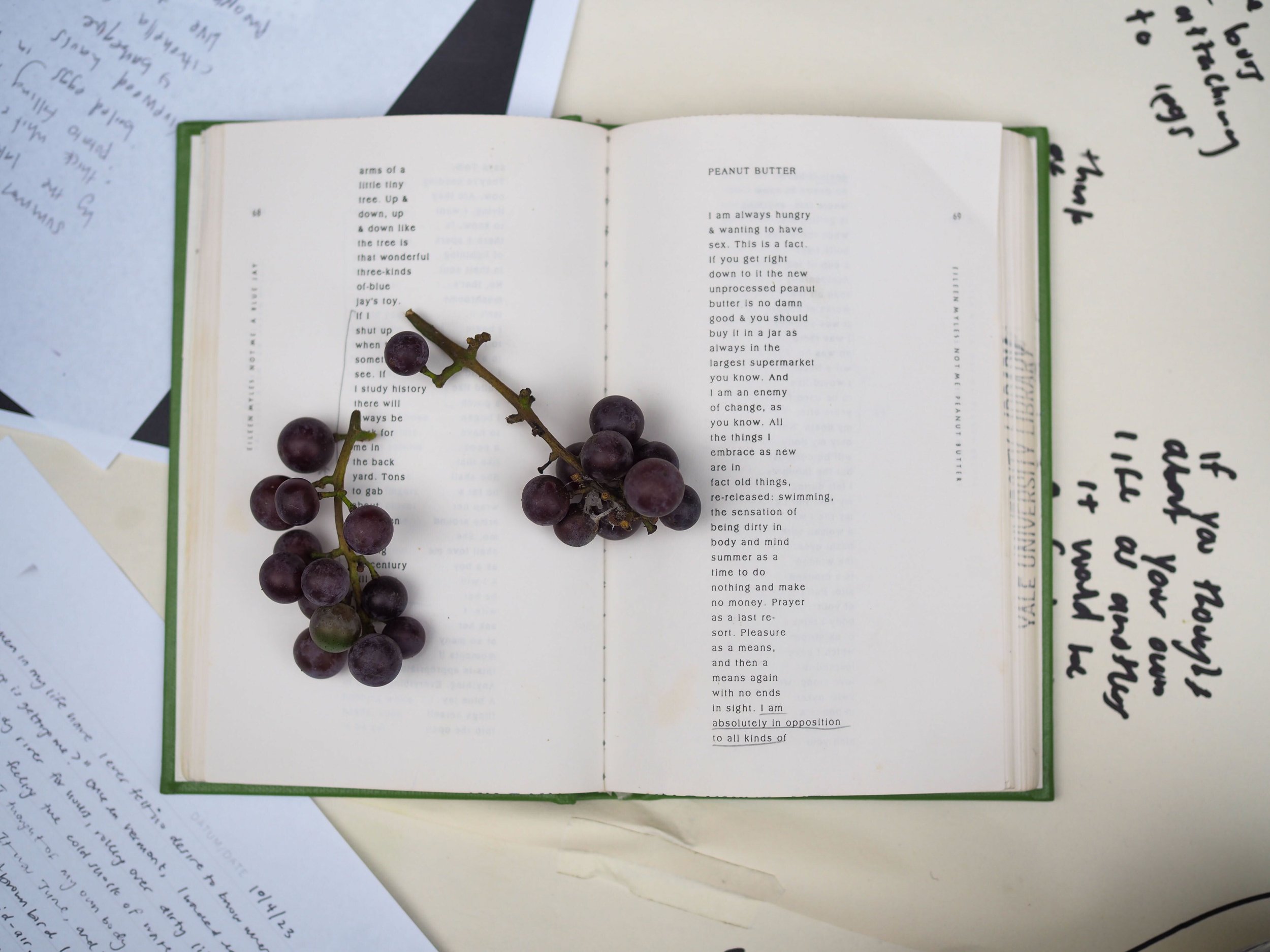
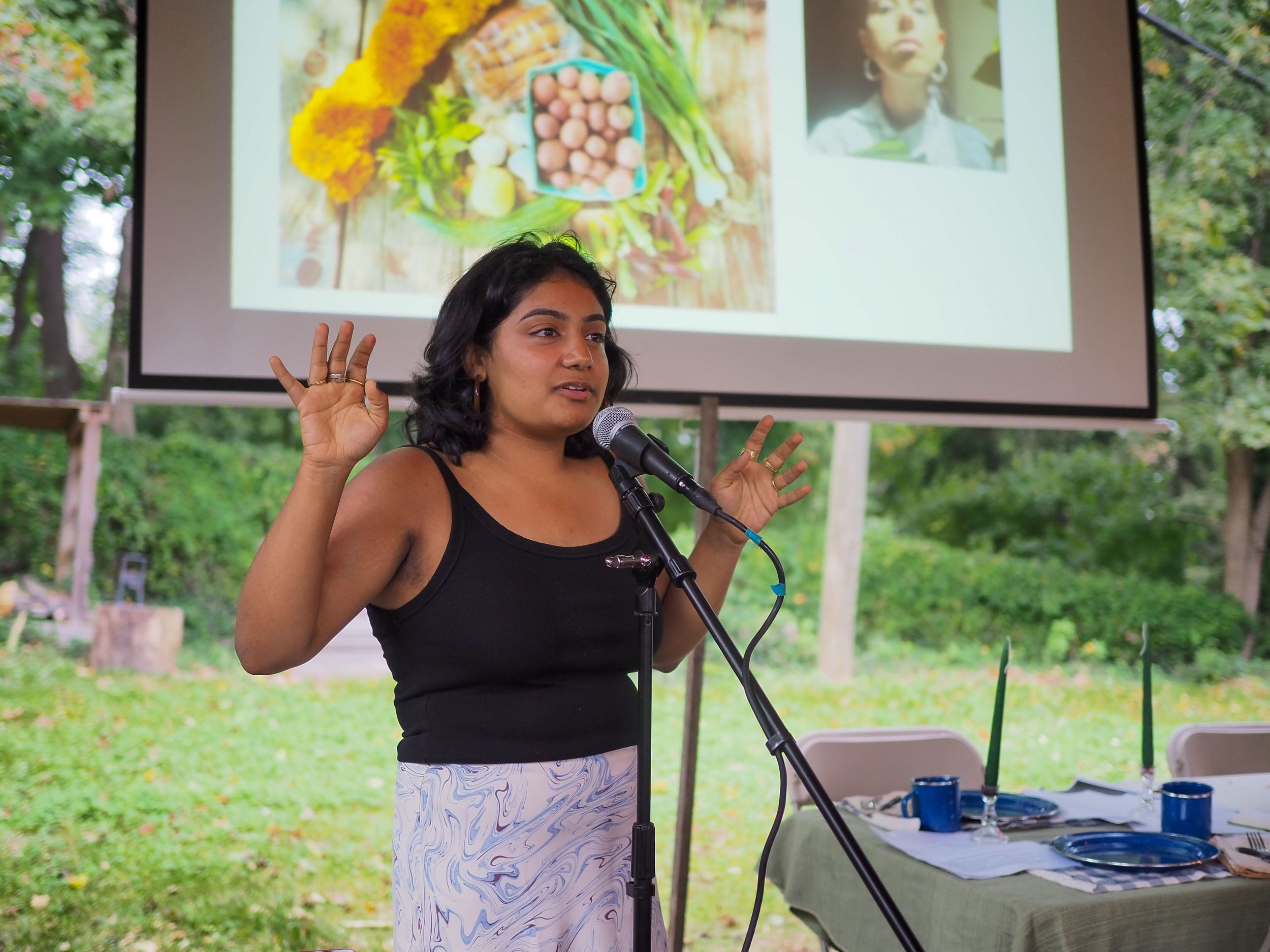

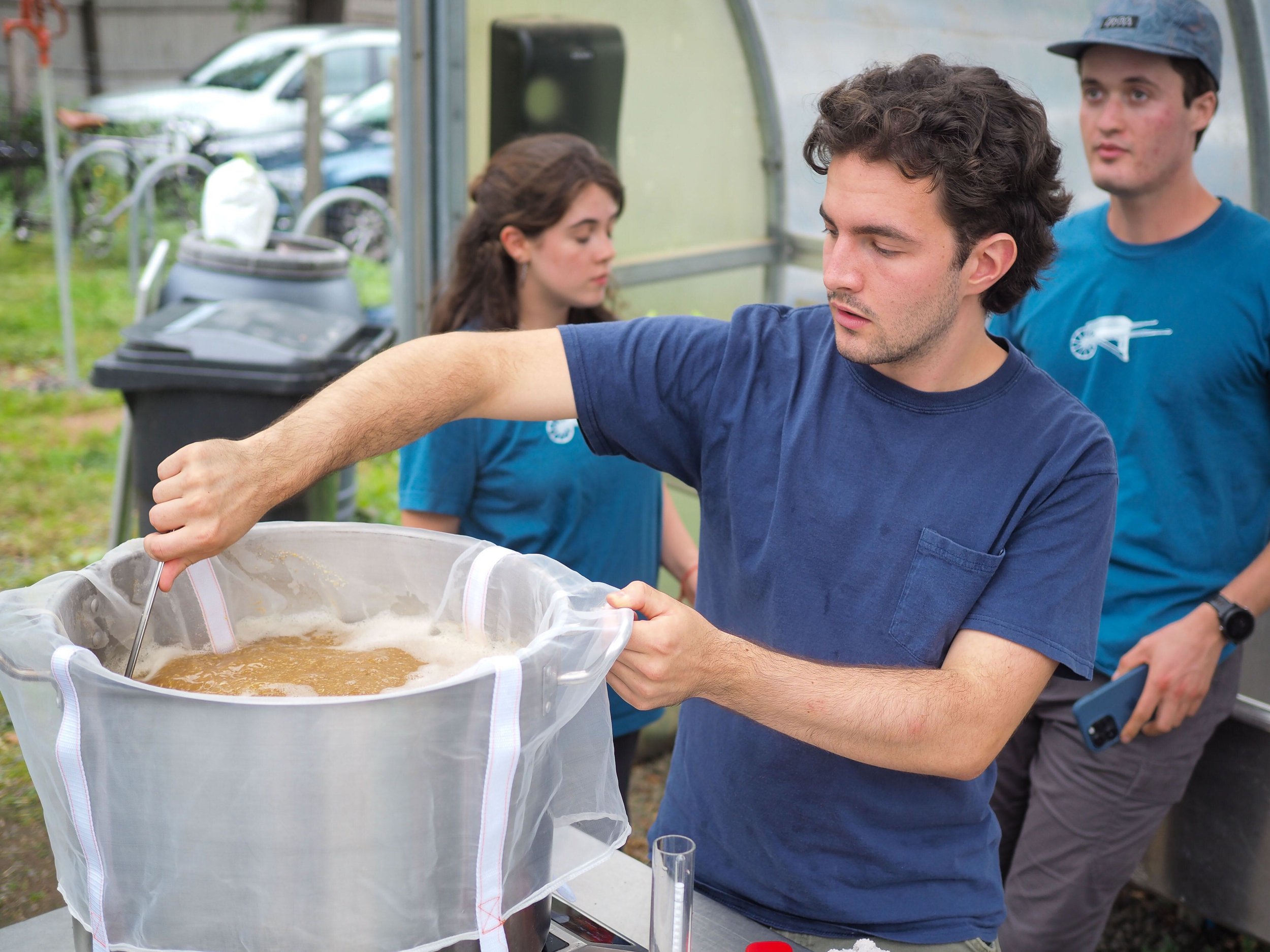
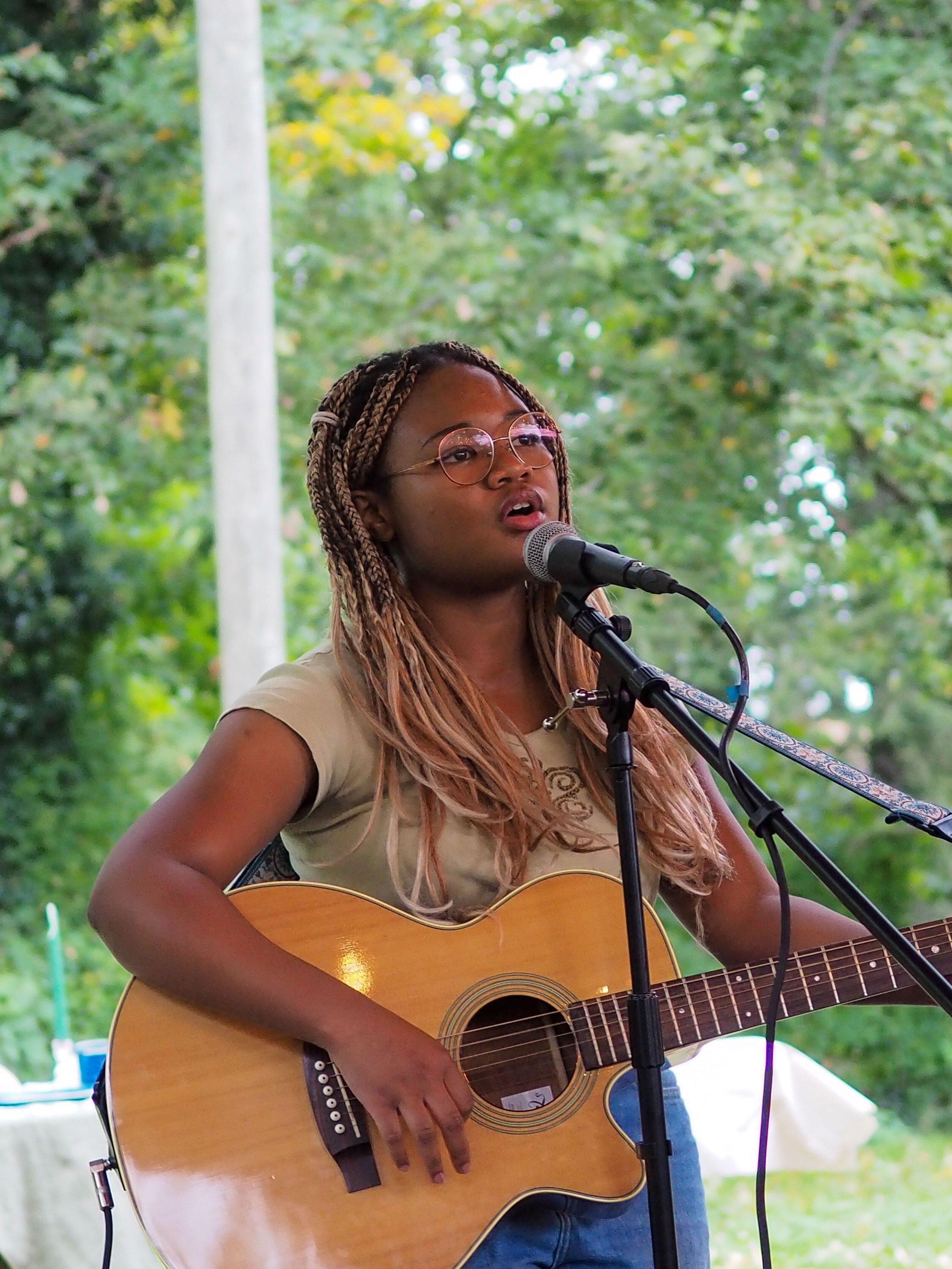
Here at the Yale Sustainable Food Program, we like to think we go against the grain — but sometimes, that means working with the grain. On Friday, October 6, students started on a batch of Yale Ale using malted barley and hops from the Old Acre. If all goes according to plan, the mixture will ferment into a delicious brew over the next few weeks (by the time you’re reading this, spoiler alert: it did). While some students stirred the pot inside the propagation house, others sowed heirloom wheat and rye seeds in the fields. The rye will be harvested next July as part of the Yale Summer Session course “Rye: Cultural History and Embodied Practice” (co-taught by farm manager Jeremy Oldfield and Maria Trumpler).
Students then washed their hands and turned their attention to a different carbohydrate: pizza. While they enjoyed the delicious pies topped with apples, eggplant, and everything in between, they listened to a fascinating presentation by Global Food Fellow Kavya Jain '25.
Jain’s fellowship was inspired by a project for the class “Poets and their Papers.” While exploring the archives of poet Mei-mei Berssenbrugge in the Beinecke Library, Jain found an exhibition guide from the painter Georgia O’Keeffe. Jain learned that Berssenbrugge was a friend of O’Keeffe’s and regularly shared meals with her. She set out to explore how meals function as a site of poetic imagination, traveling to rural New Mexico to interview Berssenbrugge directly.
The initial conversation with Berssenbrugge was disappointing for Jain. The poet expressed hostility toward Jain’s project, failing to see the connection between food and art. In many of her papers, too, Berssenbrugge implies that the two are in conflict, expressing anxiety over her body and suggesting that devoting effort to food takes energy away from writing.
Although Jain found the interview difficult, her further work helped her make sense of the conversation. After reading the book Women, The New York School, and Other True Abstractions and talking with New Mexican poet and farmer Mallika Singh, Jain saw how gender and generation might have shaped her and Berssenbrugge’s relationship with food in different ways.
As the summer progressed, Jain also started to reframe her research question. She held a Zoom call with a member of the Red Flower Collective, an art and research collective that explores queer and diasporic identities through home cooking. The conversation led her to ask not only how food exists in poetry archives, but also how poetics might serve to archive food practices. Upon returning to New Haven, she hosted her own archive-making meal, asking friends to respond to the poem “Peanut Butter” by Eileen Myles and to reinterpret the evening’s menu in a way that aspired to abstraction, not perfection.
Jain ended the presentation with an exhortation to “eat, read poems, and keep your papers” — useful reminders for us all. Fittingly, we had the Yale Song Writing Collective have their members perform original songs while we continued to think about poetry and eat pizza. We thank Jain for her insightful presentation and everyone who gathered on the Farm to hear it. Photos of the workday and knead 2 know by Reese Neal '25 are available here.

